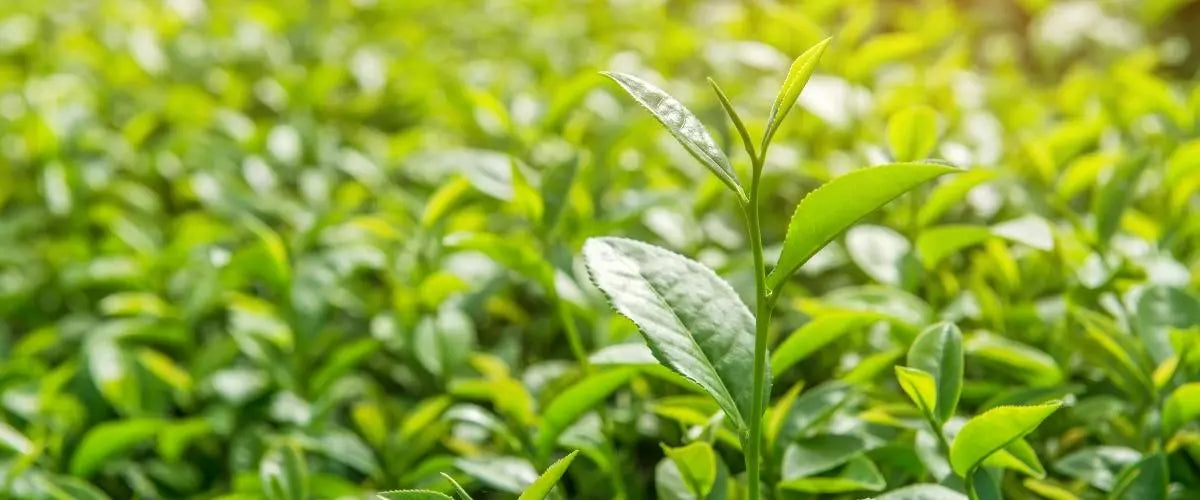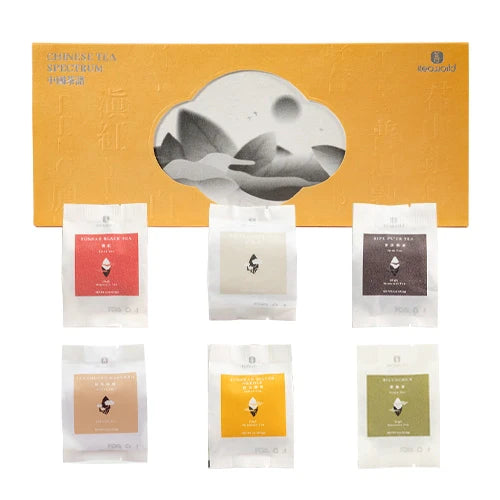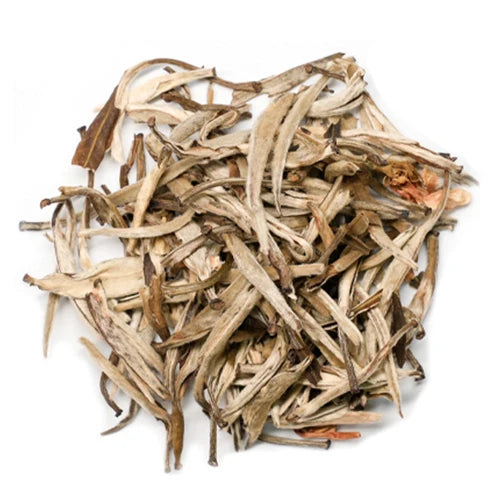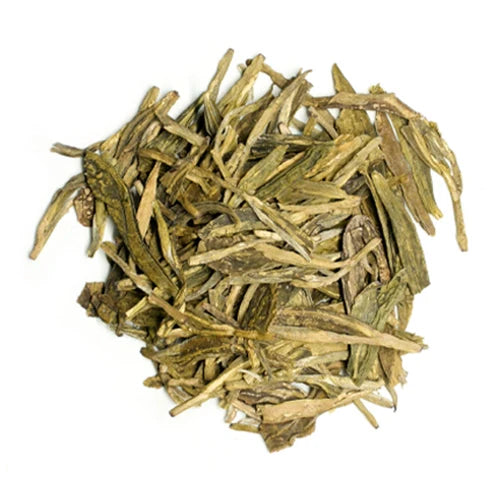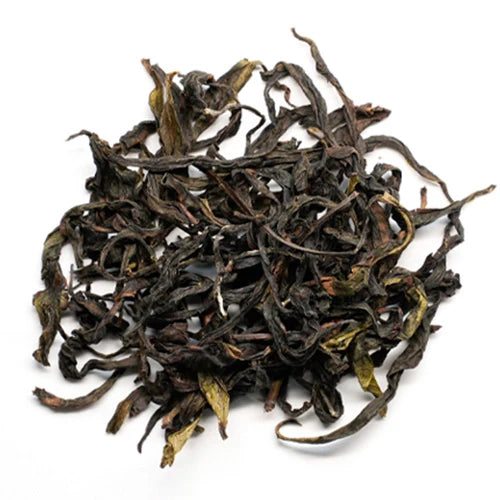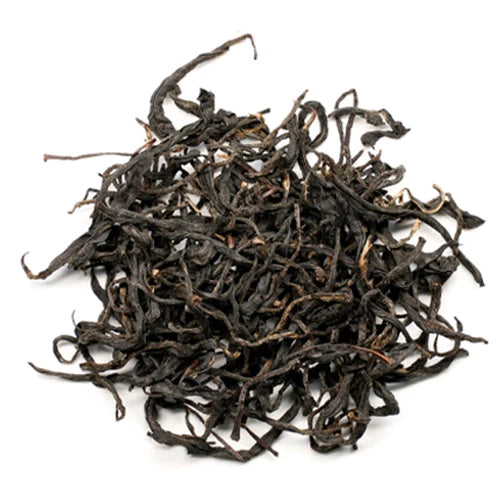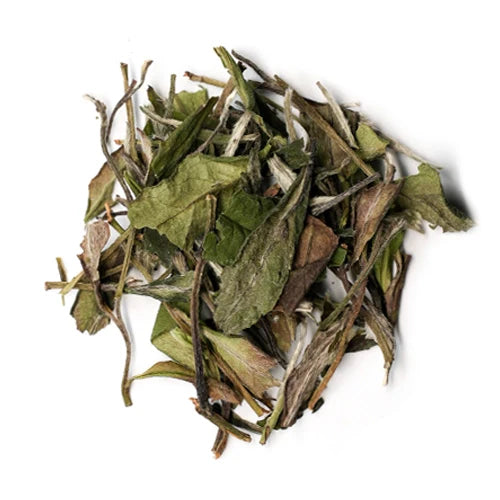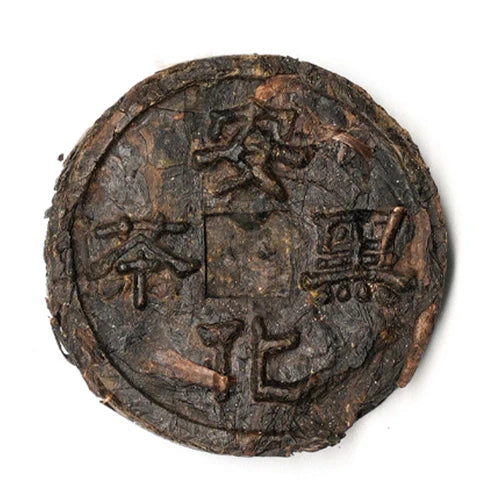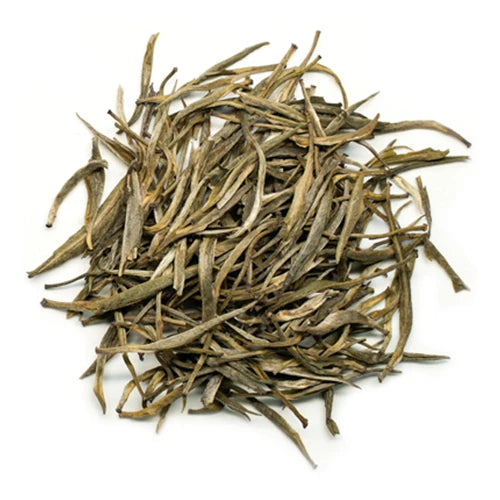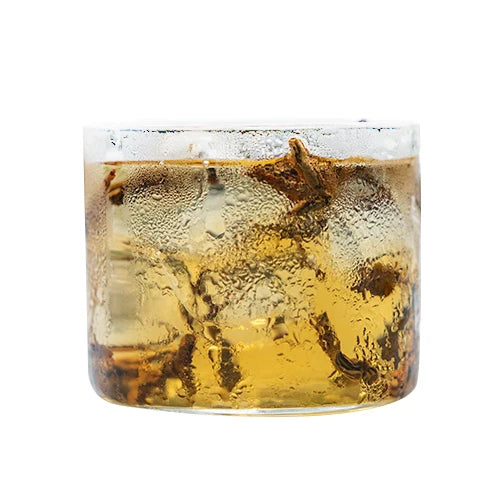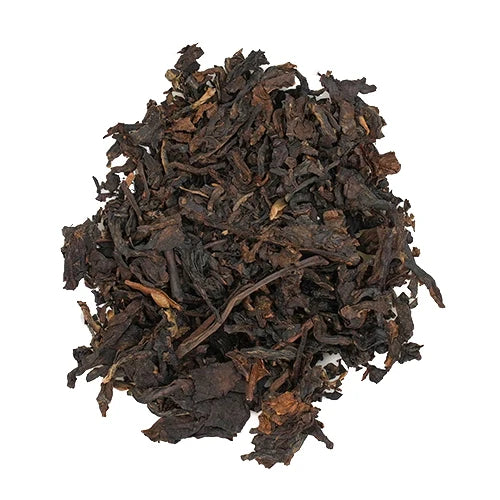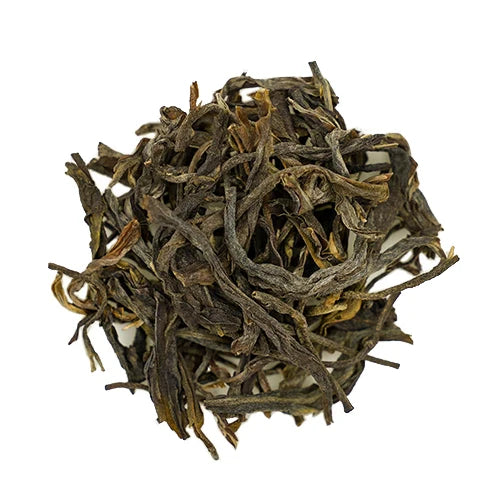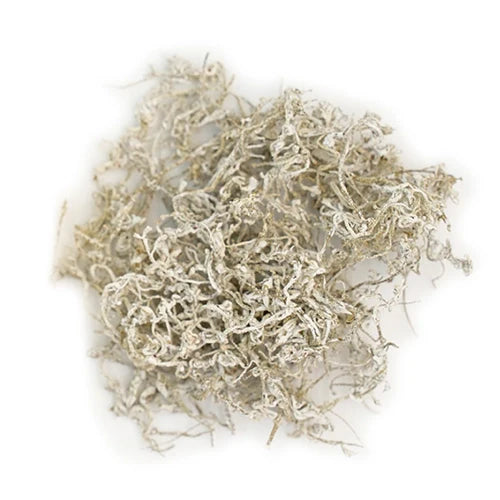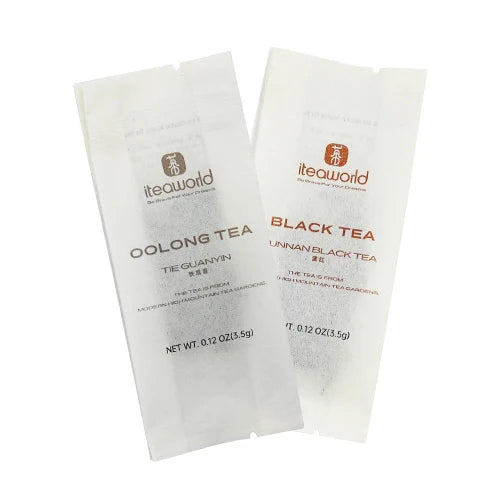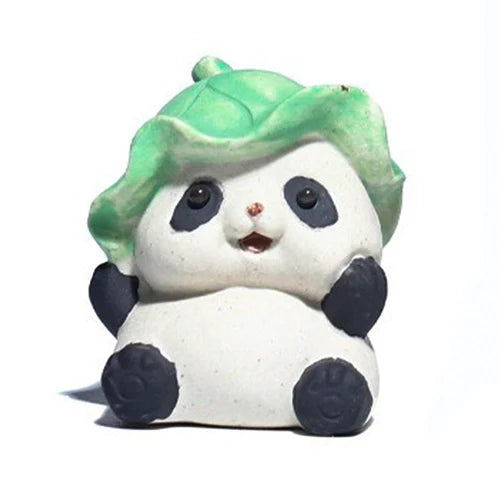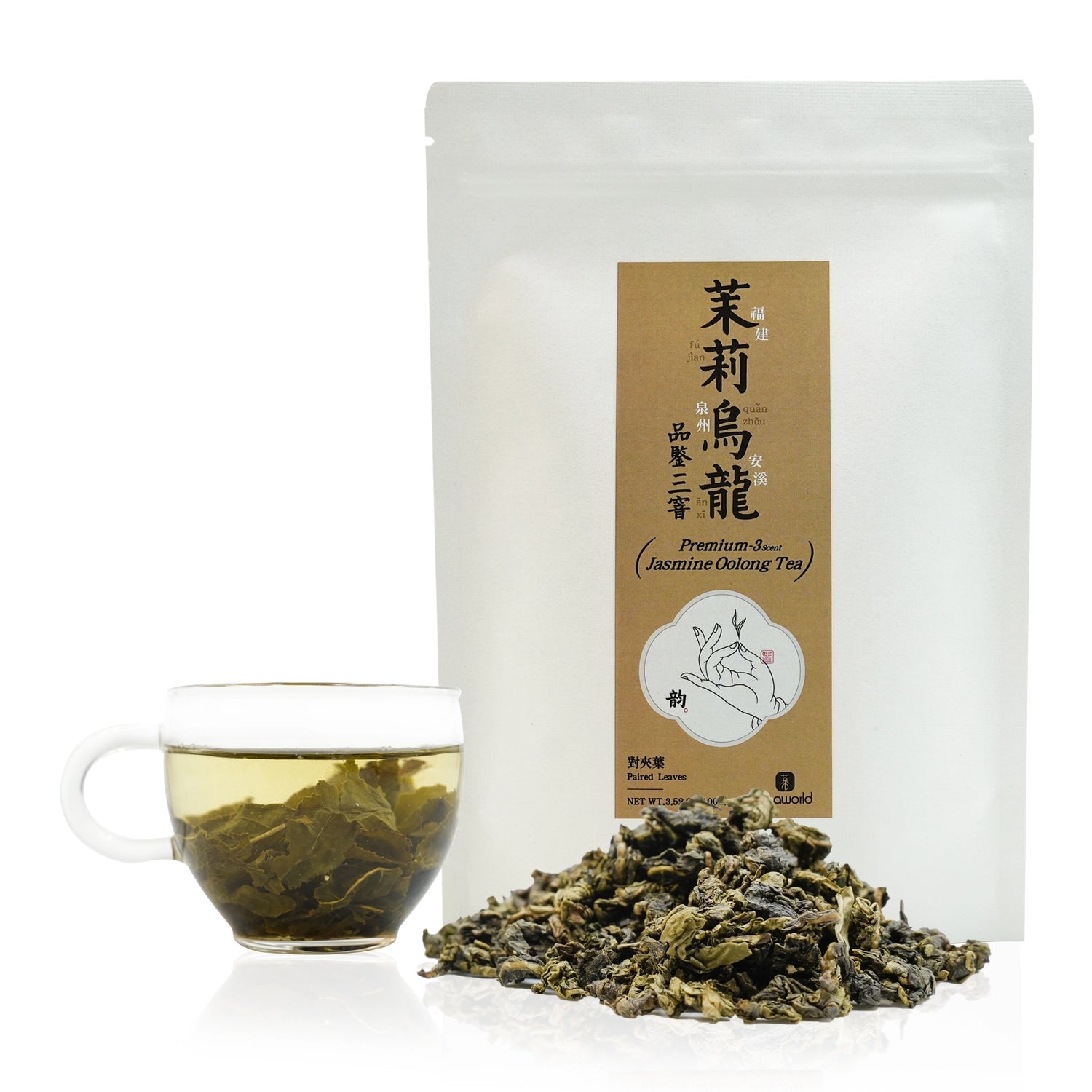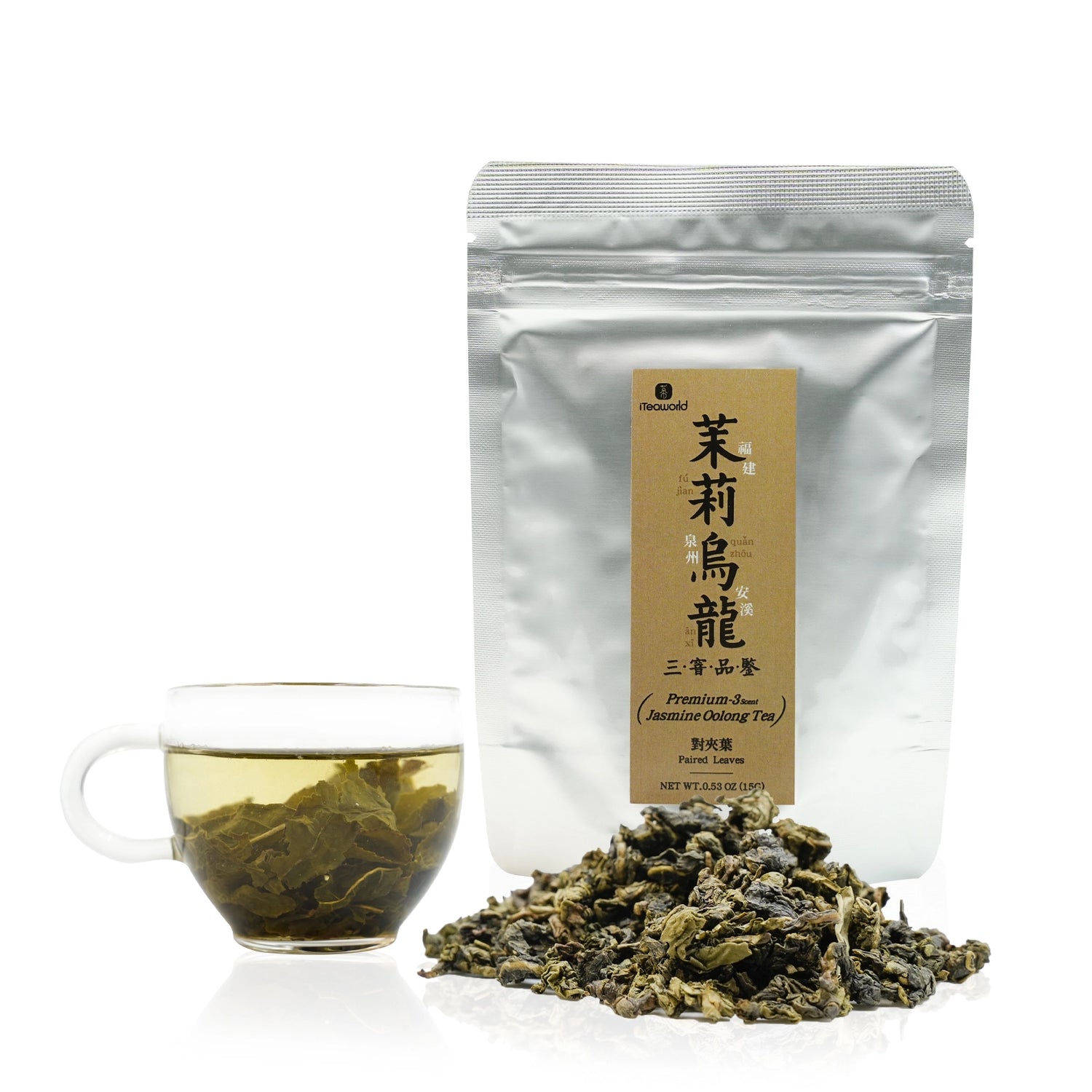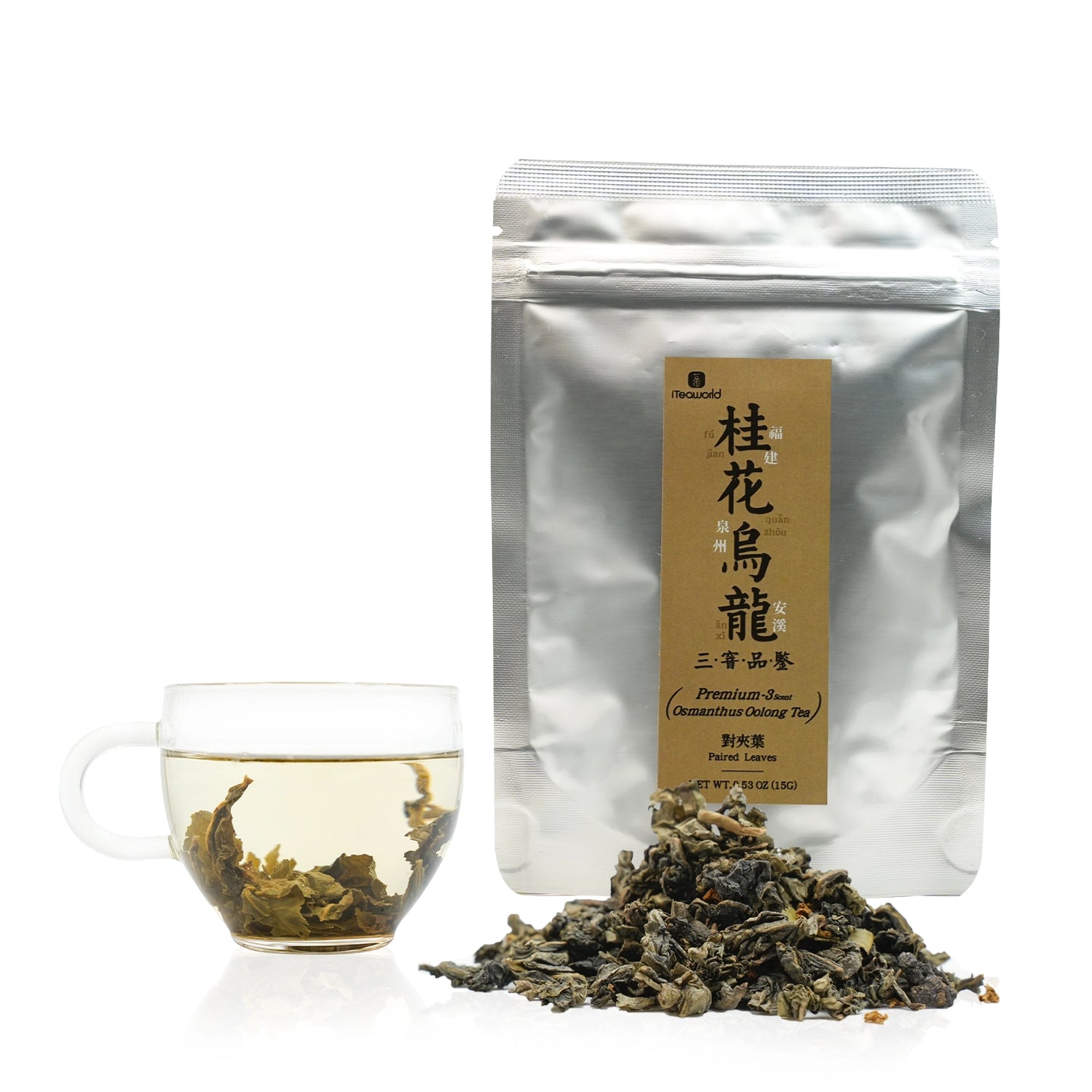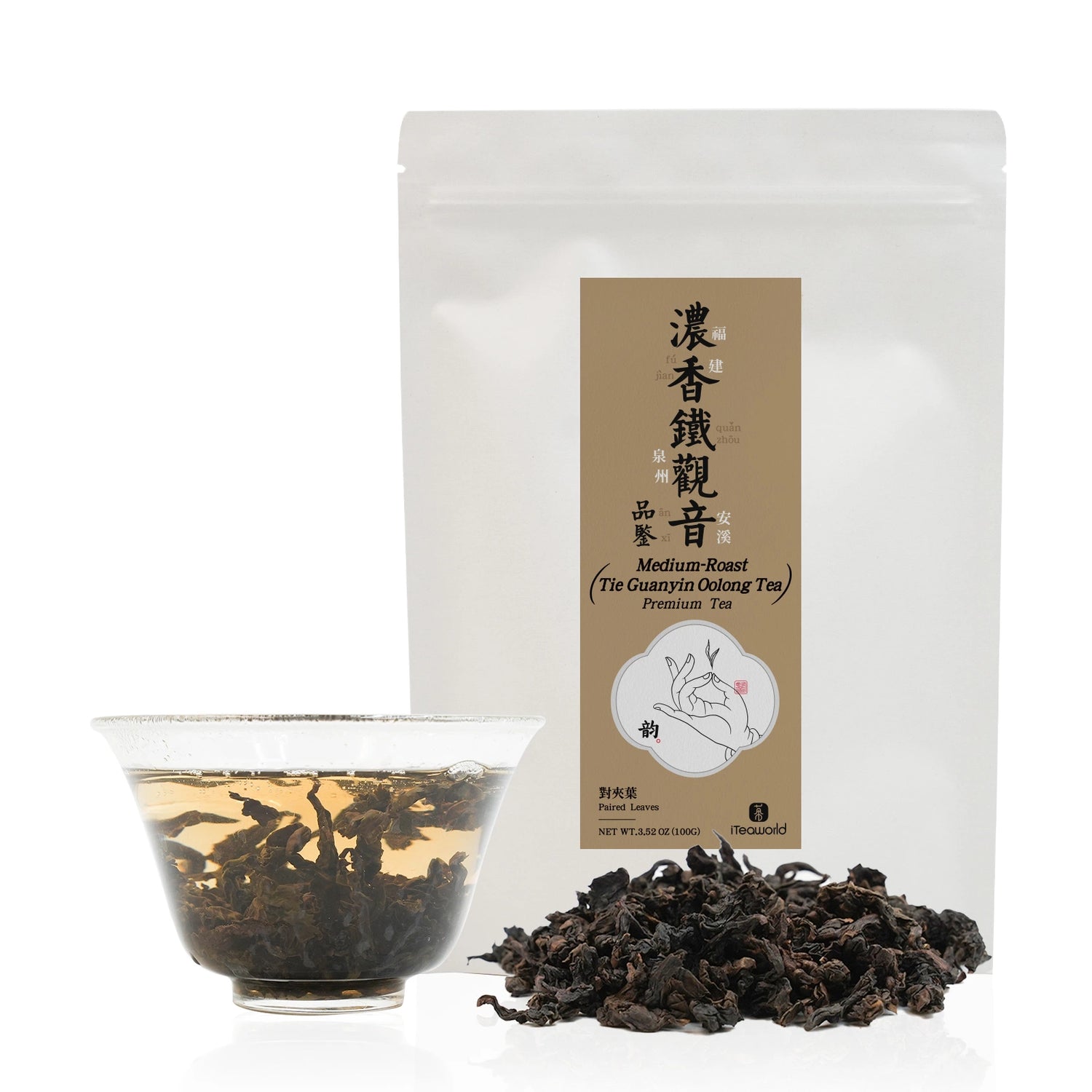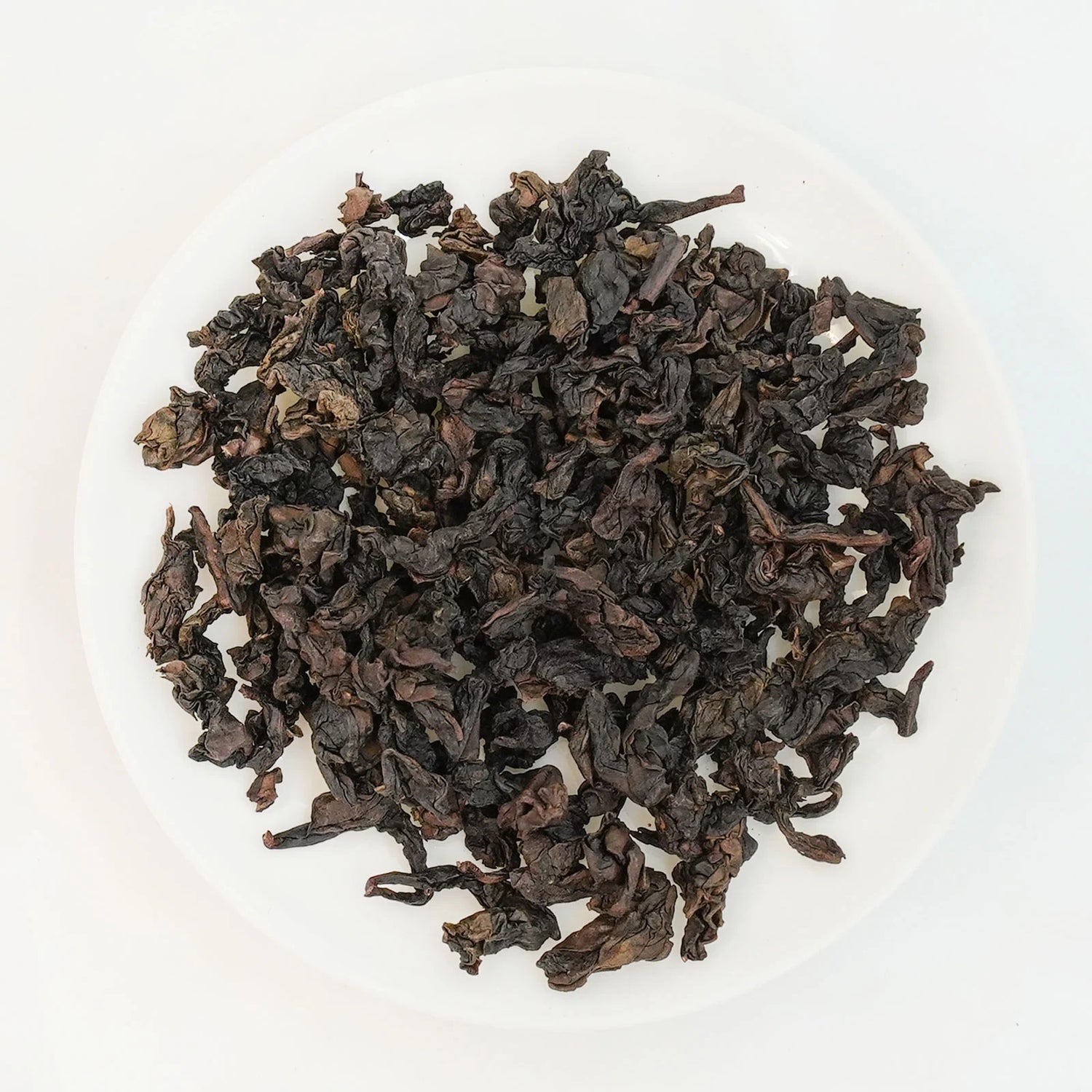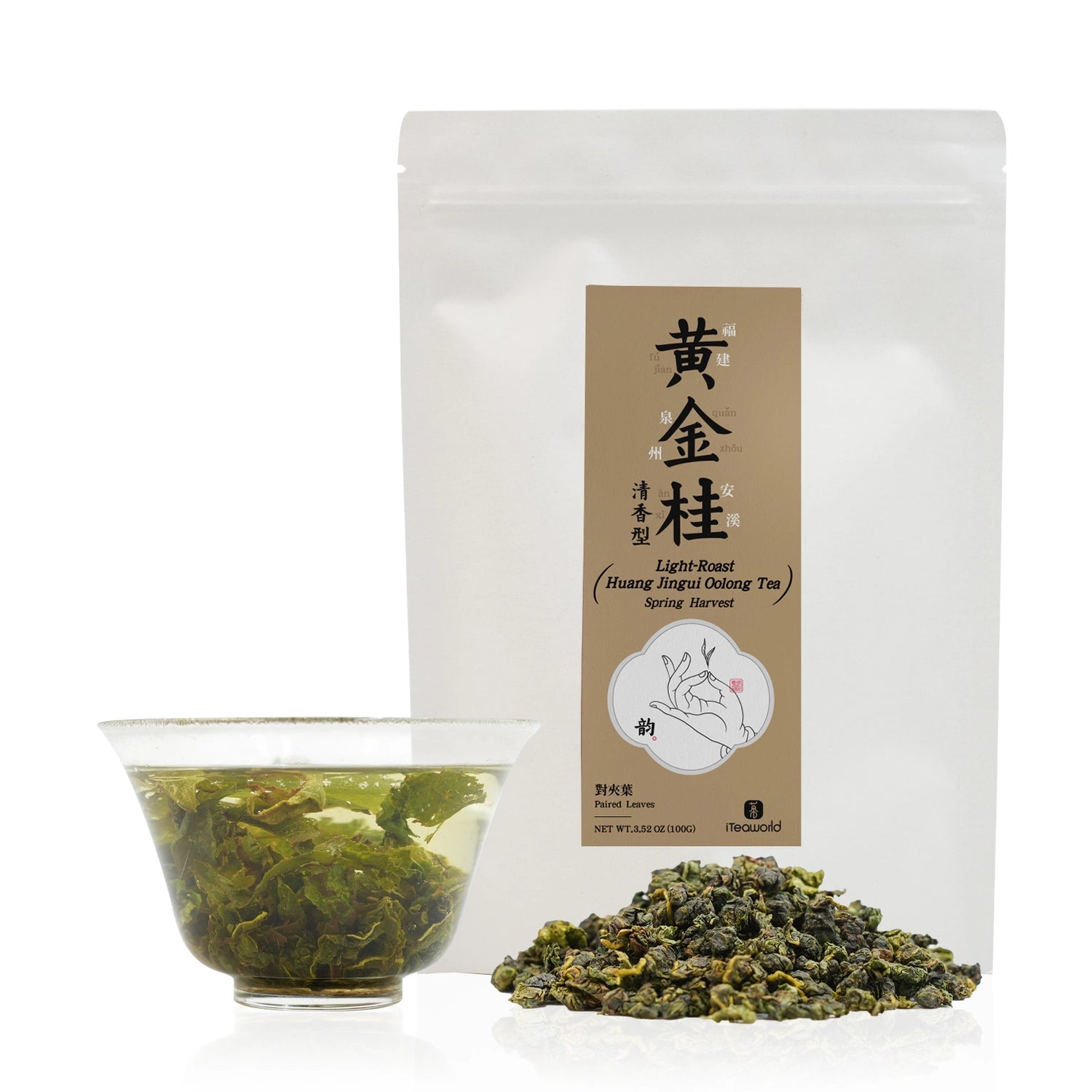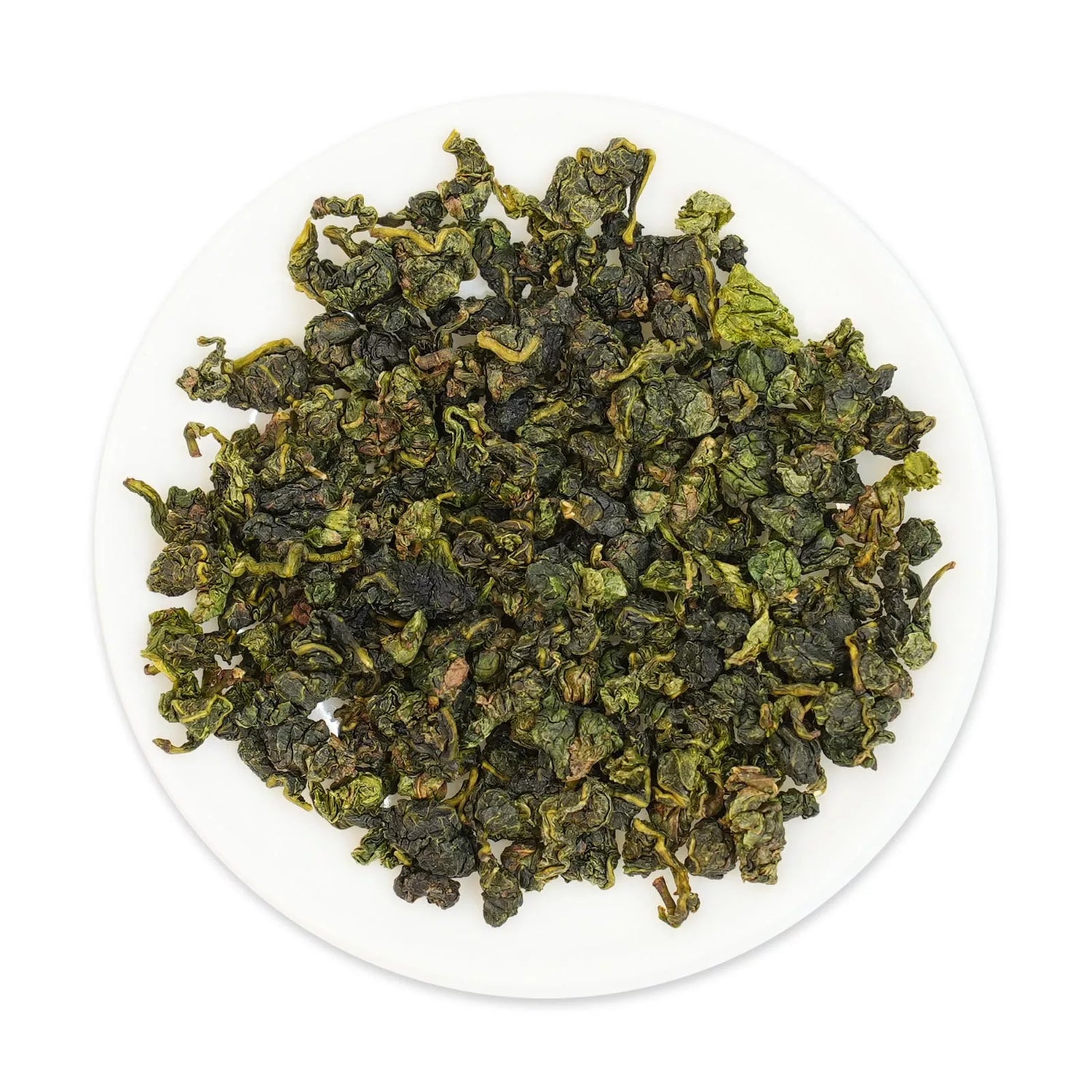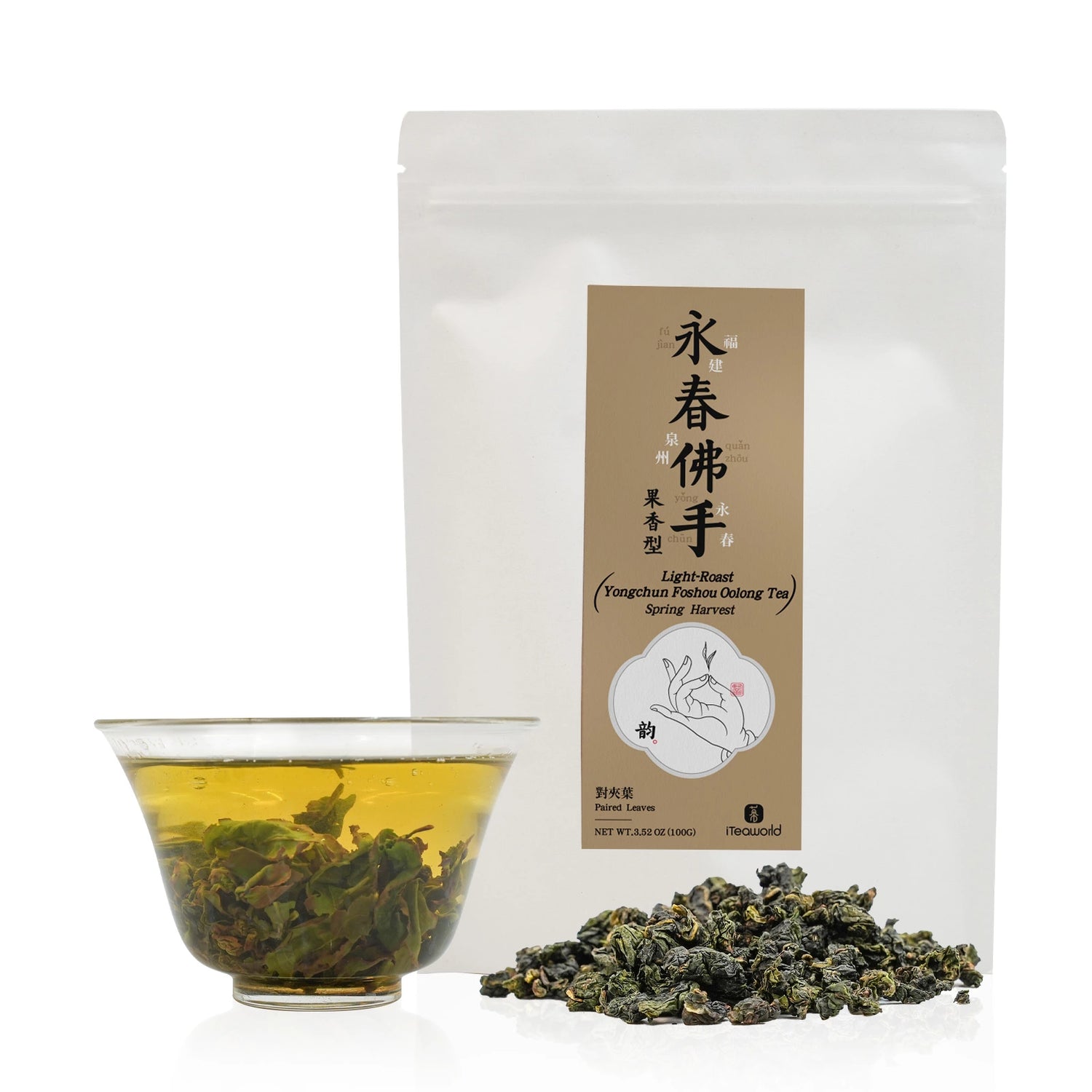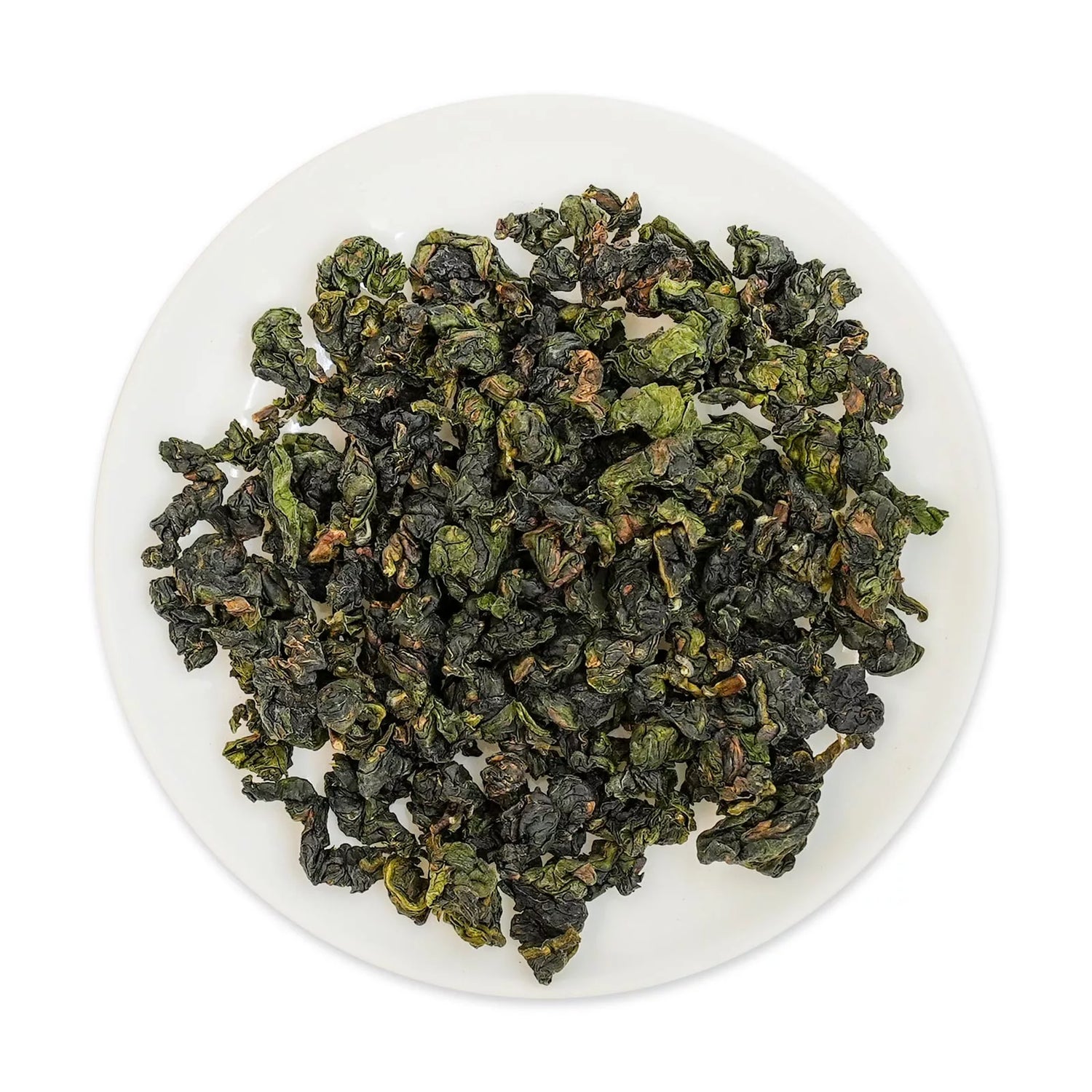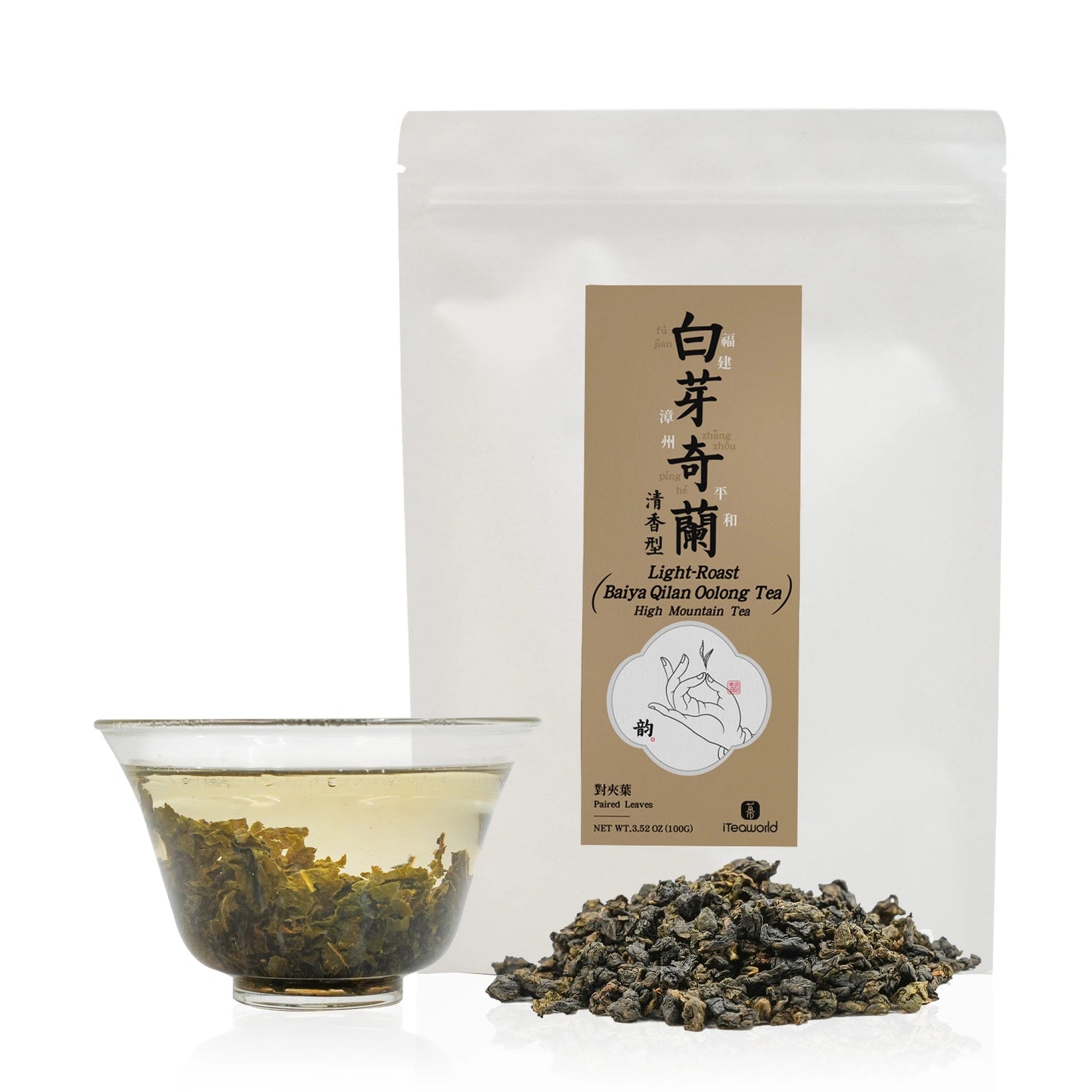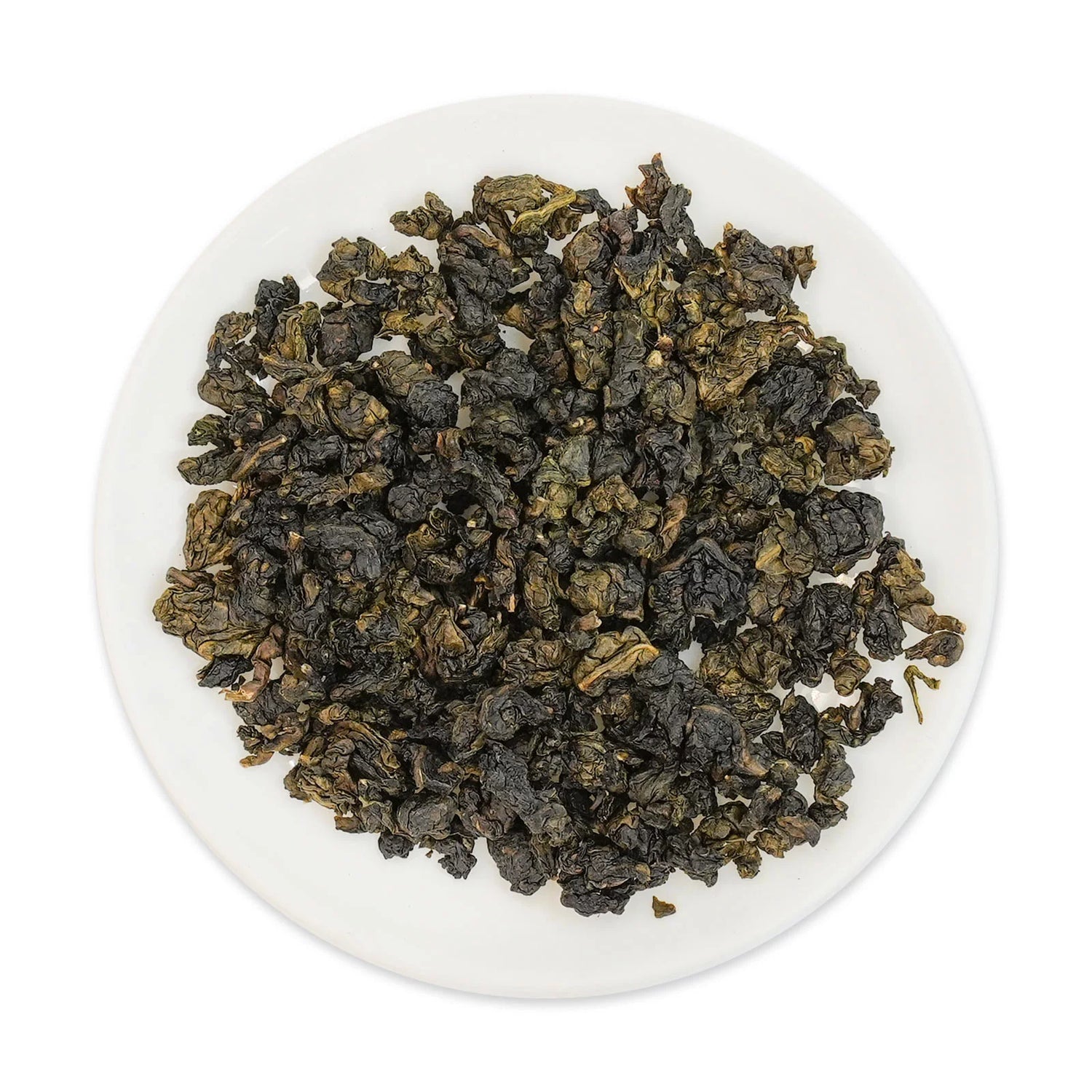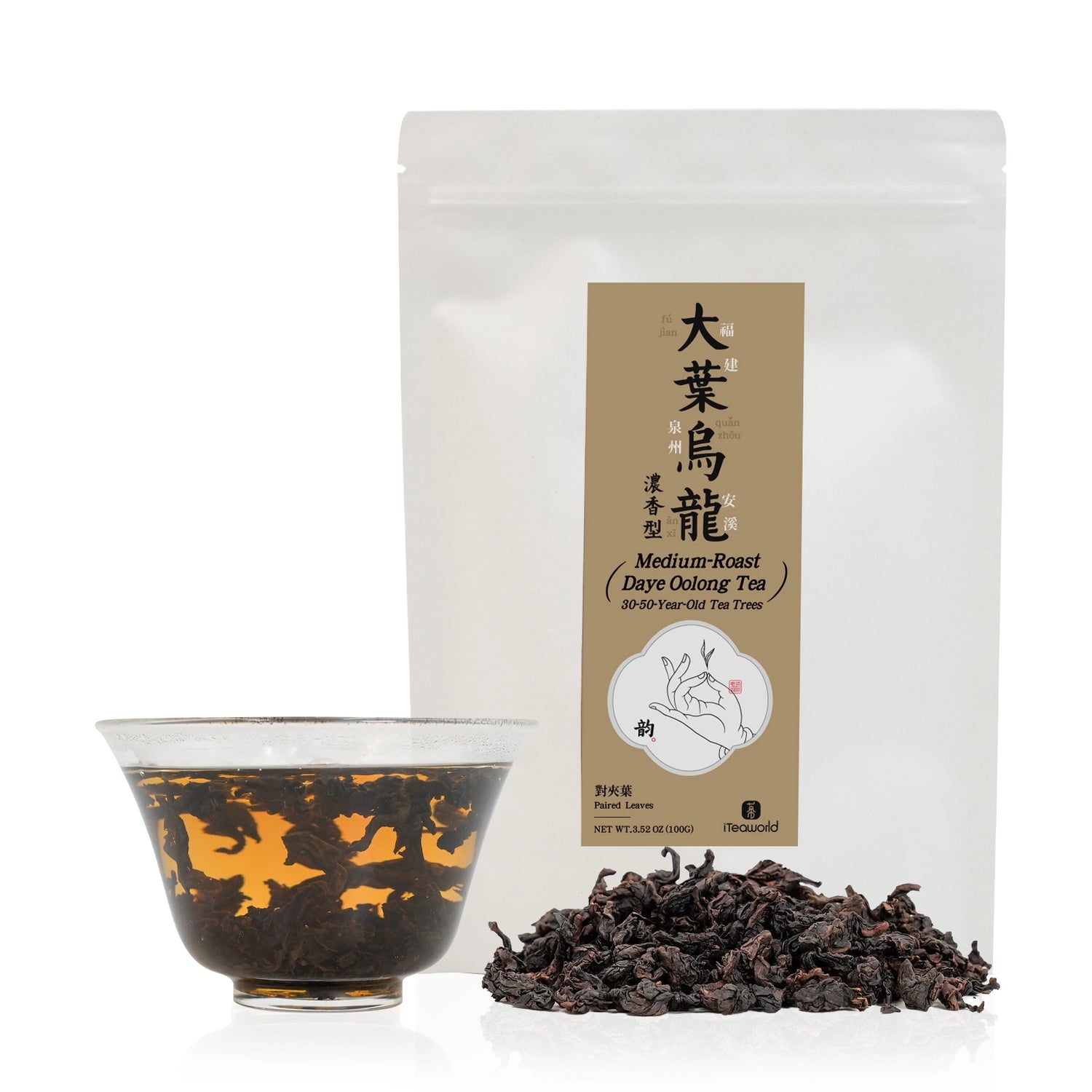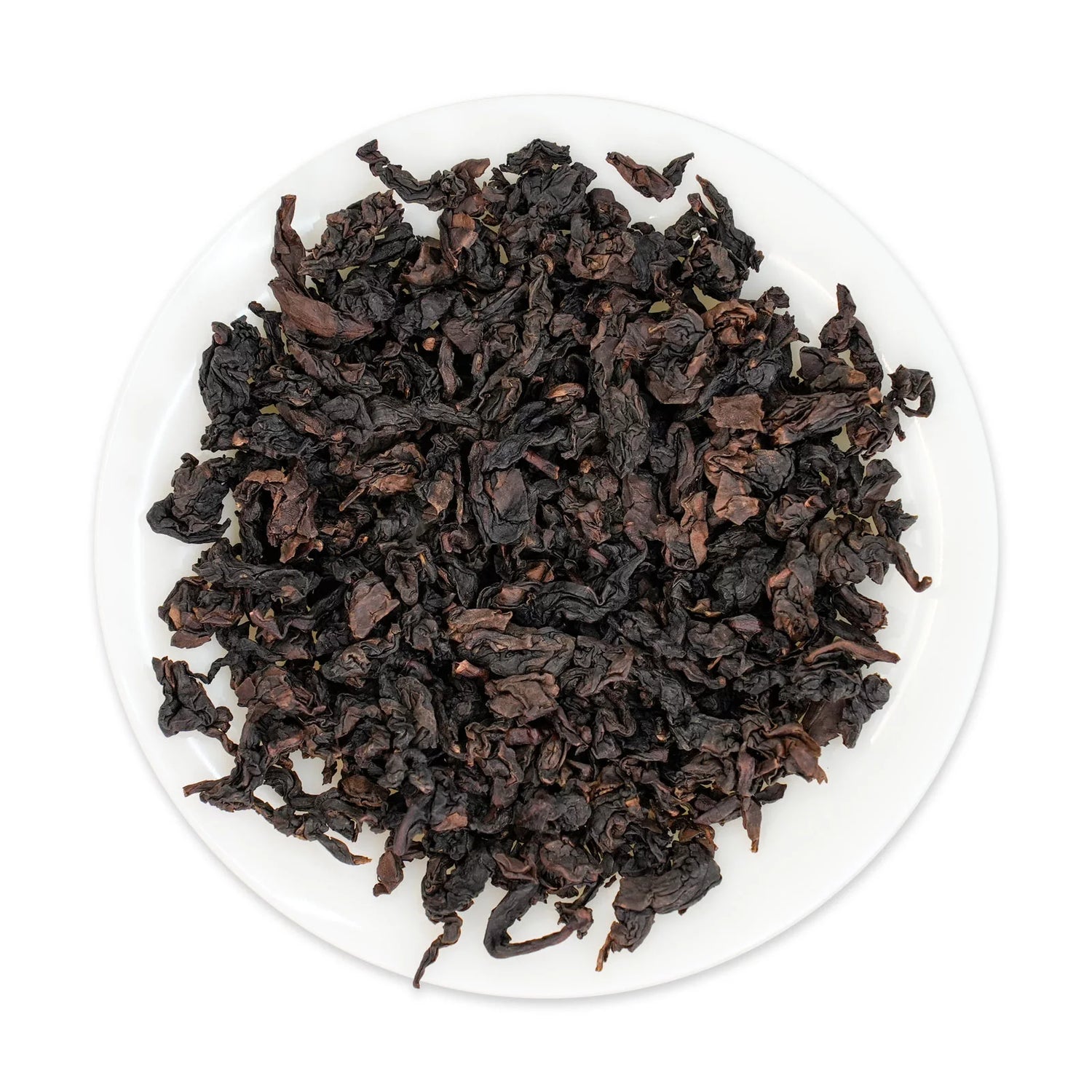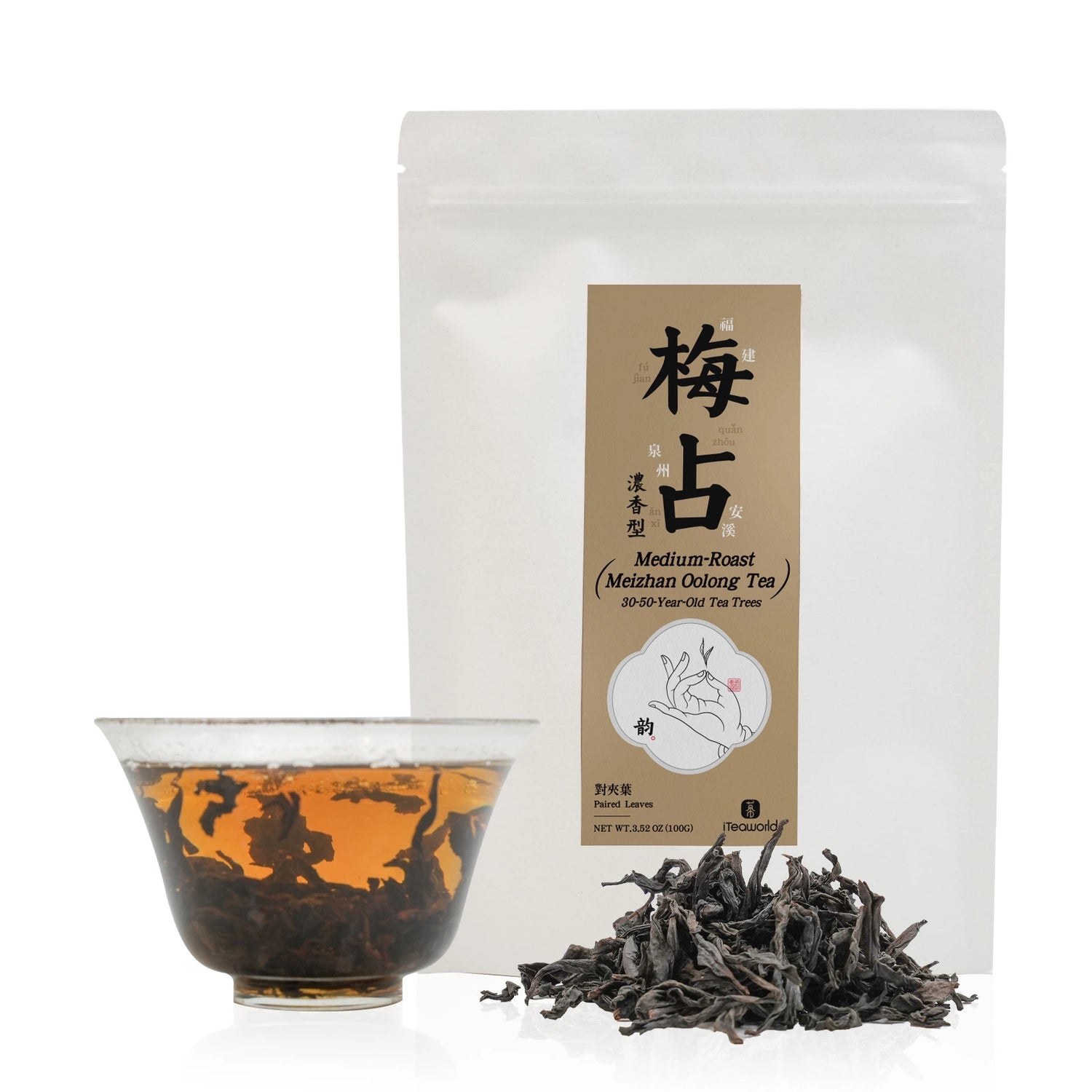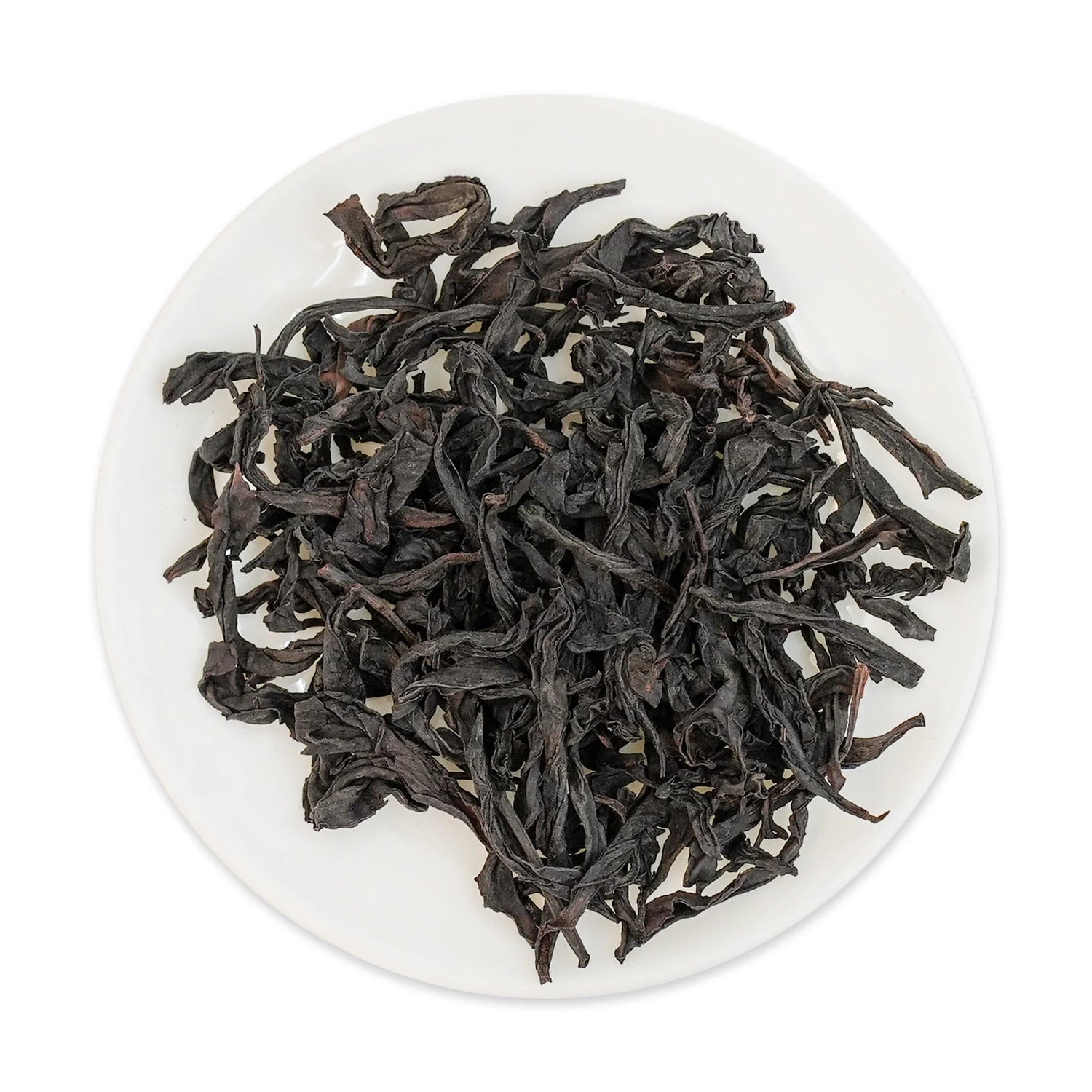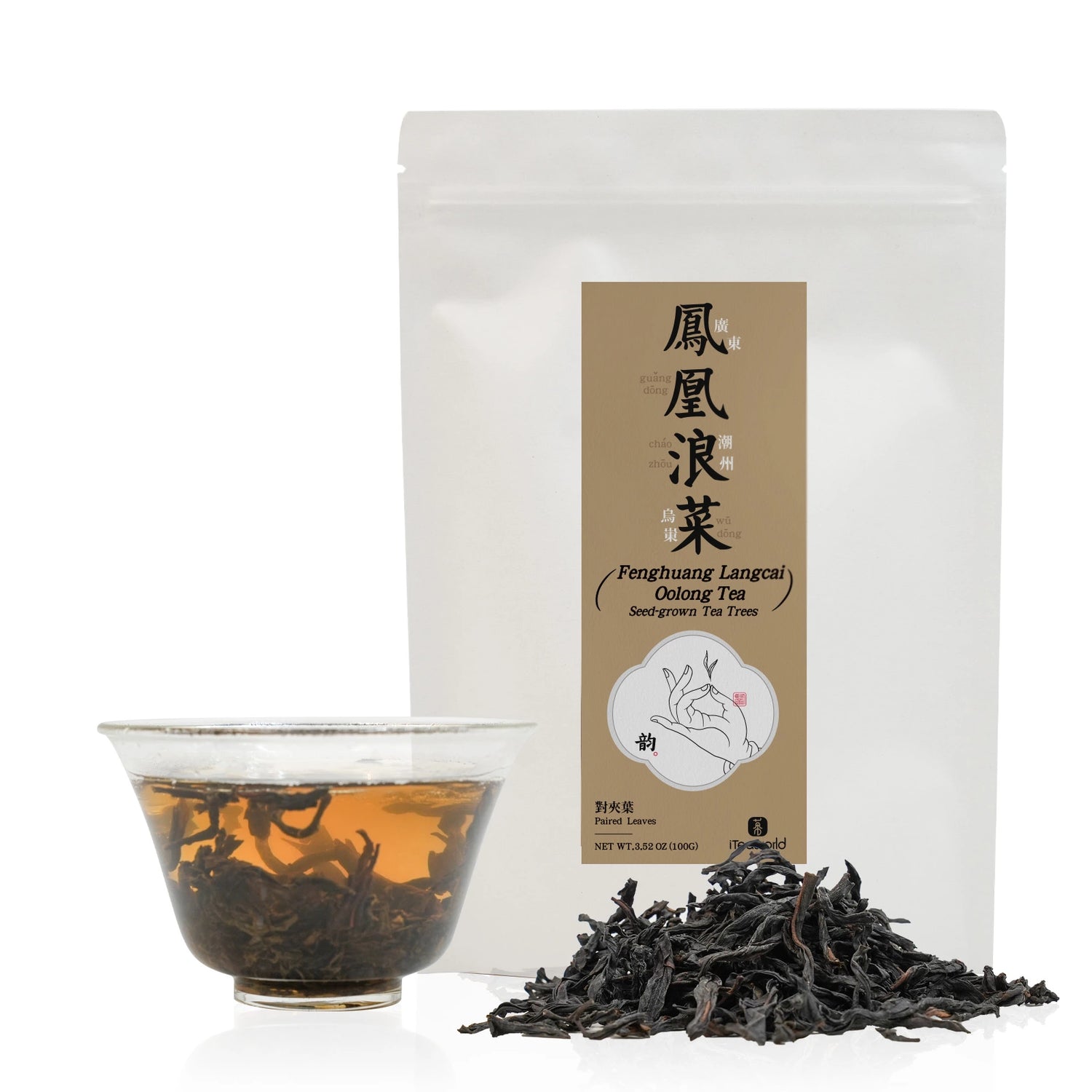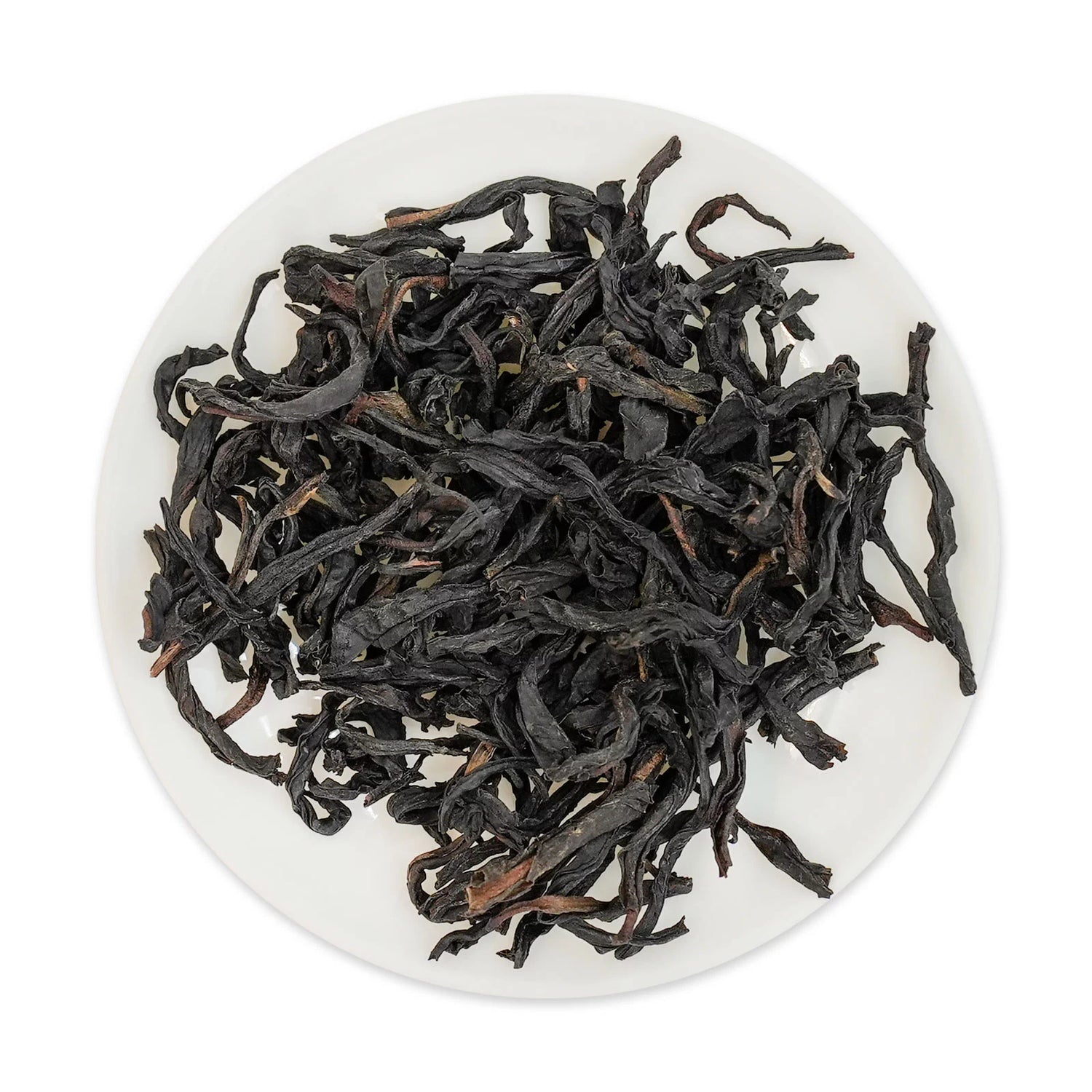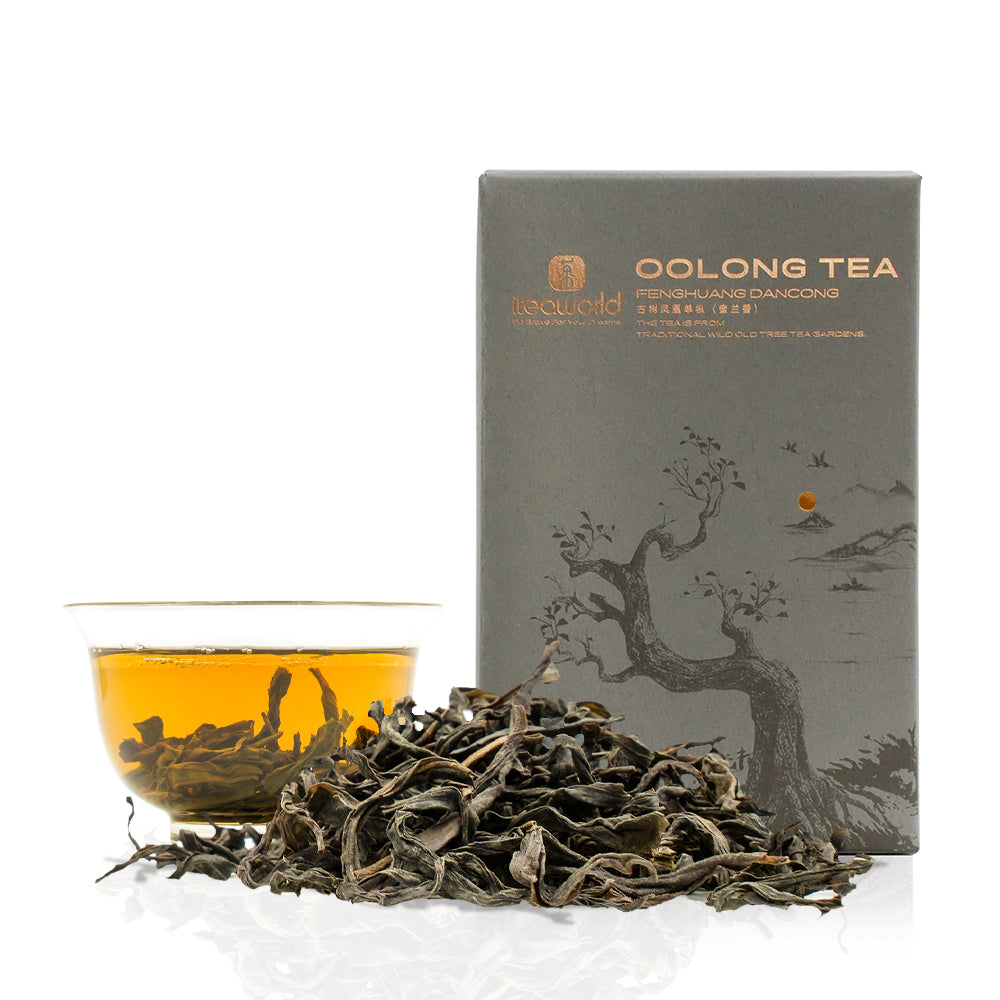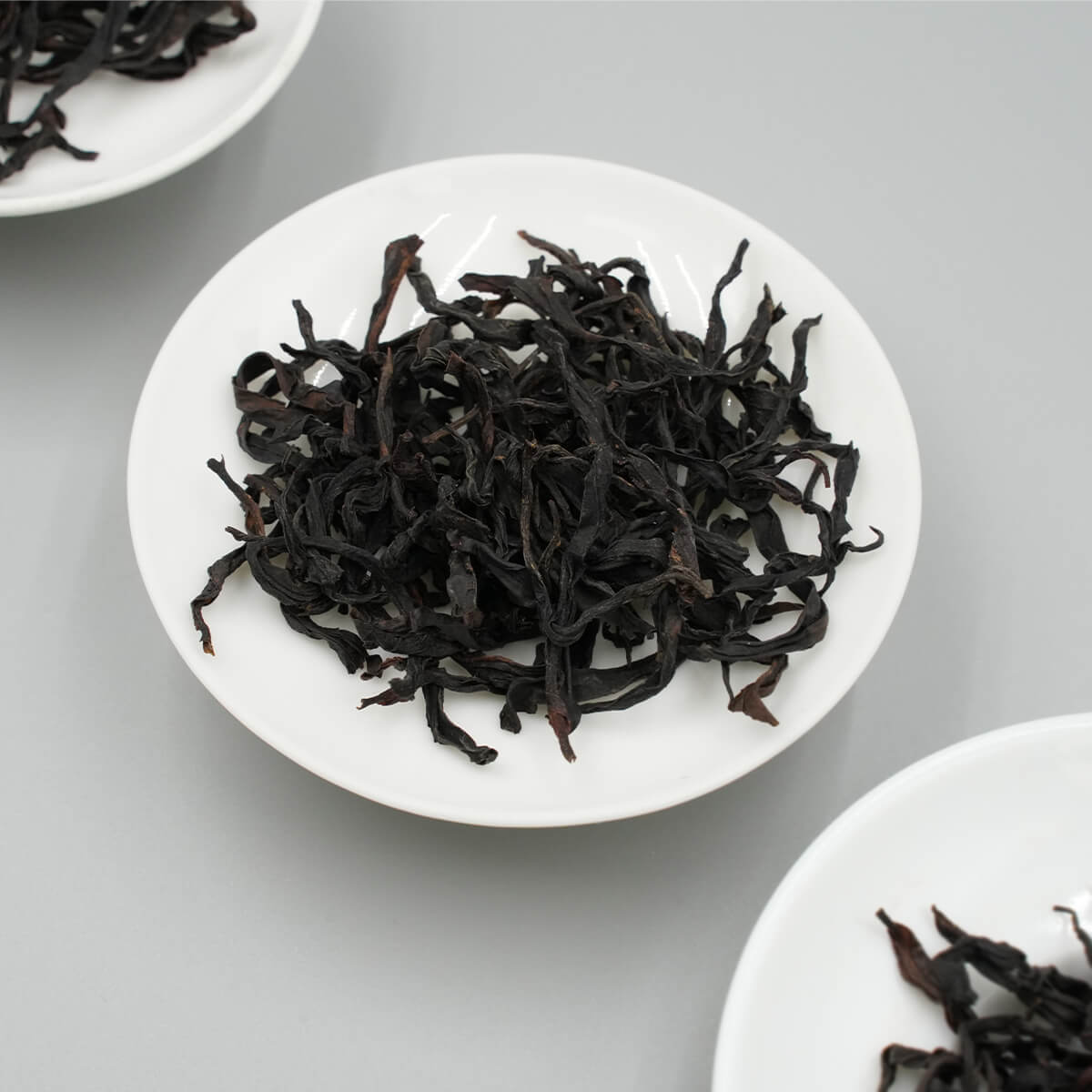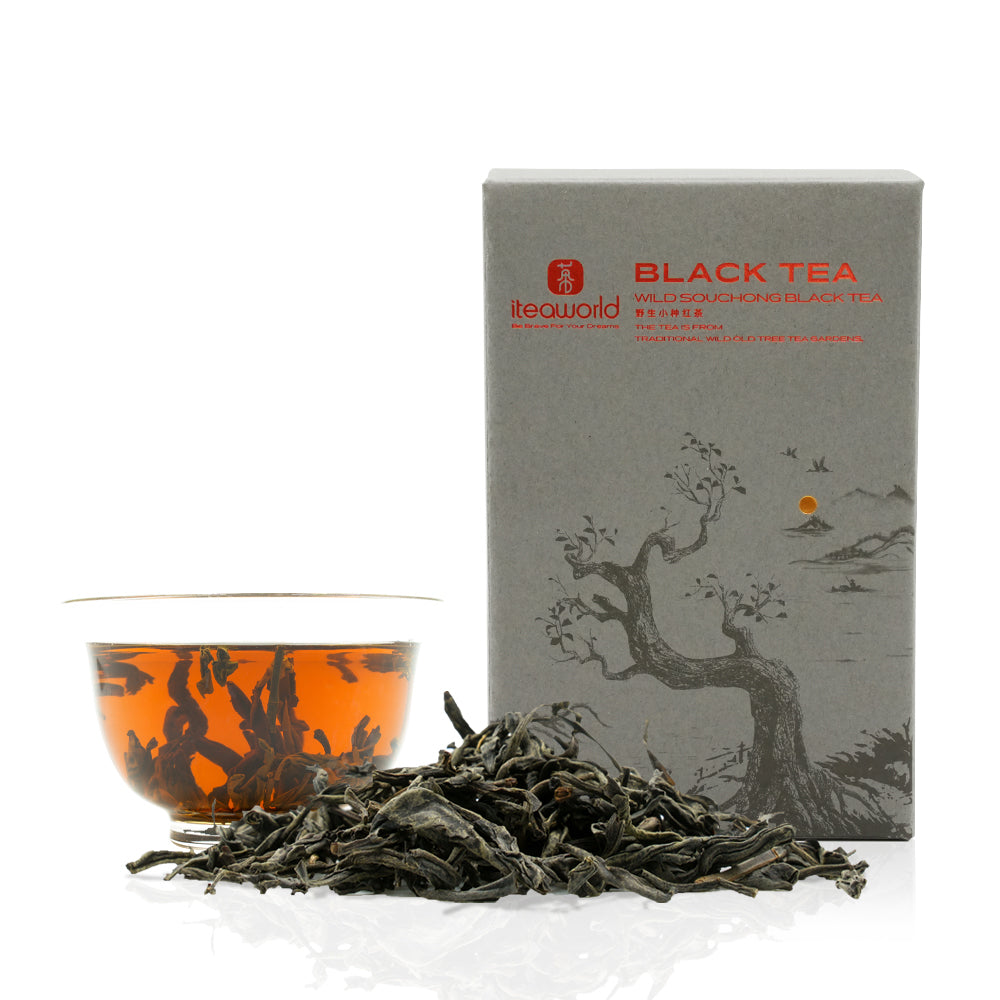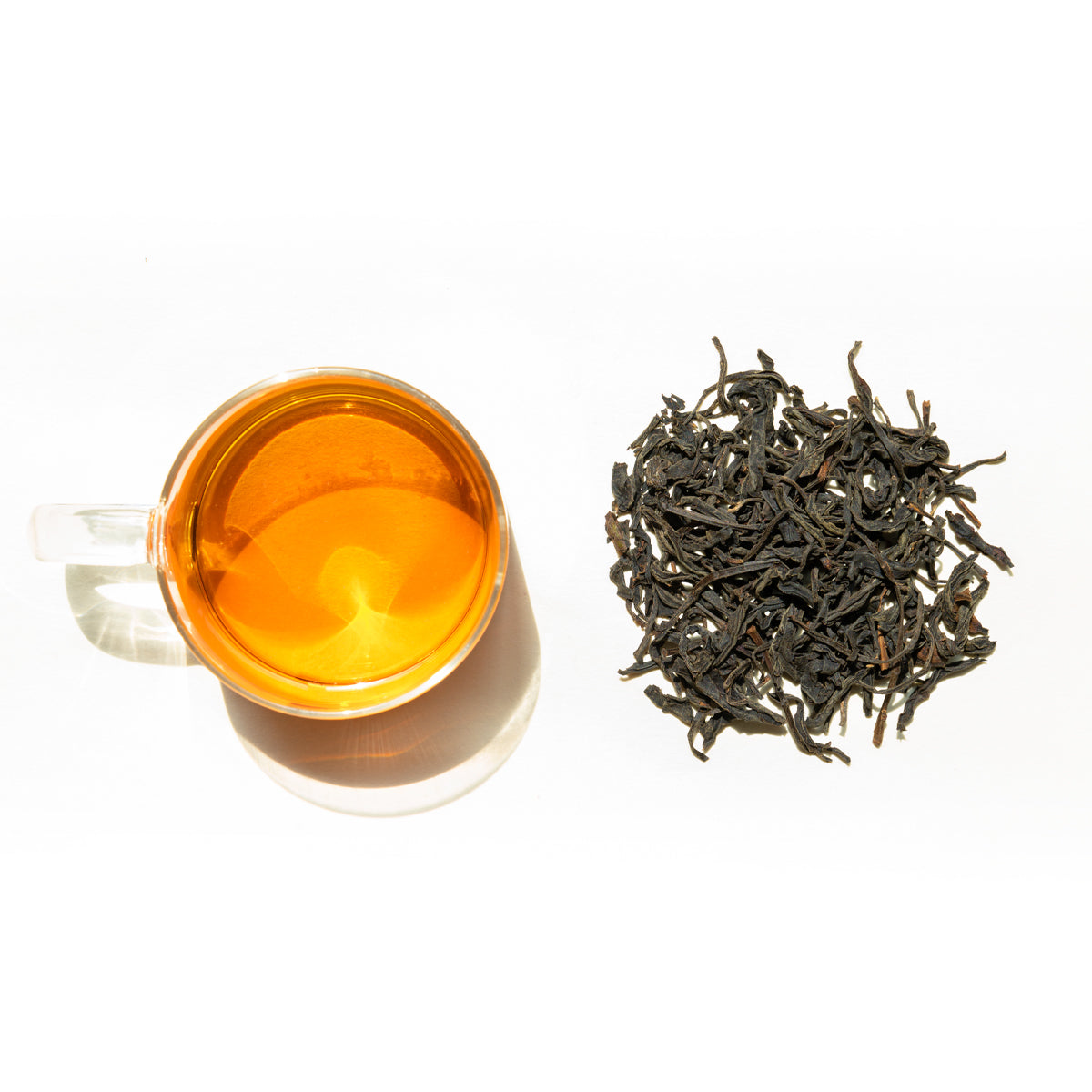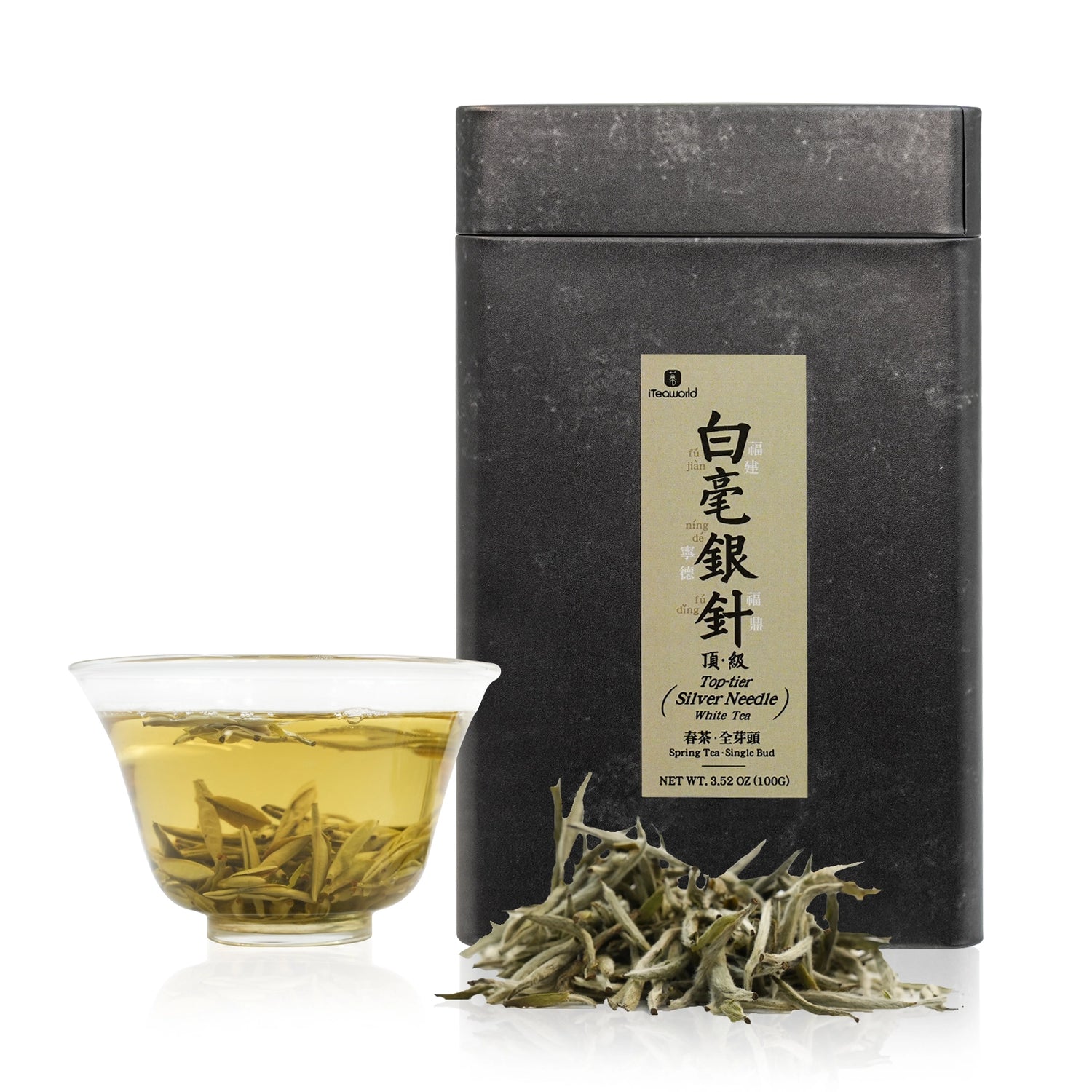Sort by:
61 products
61 products
2024 Jasmine Tieguanyin Oolong
Who It’s For:
Light, refreshing, and perfectly balanced, this Jasmine Tieguanyin Oolong is for tea lovers who enjoy subtle floral notes and a creamy, smooth finish. The lightly fermented Tieguanyin tea base is scented three times with fresh jasmine flowers, resulting in a tea that is delicate, buttery, and reminiscent of a serene garden. Best for those seeking a gentle, floral oolong rather than bold or heavy teas.
Tea Details:
Origin: Fangting Village, Huqiu Town, Anxi County, Quanzhou, Fujian
Harvest Date: September 2024
Scenting Rounds: 3 rounds
Tea Base: Fragrant-style Tieguanyin oolong
Tea Cultivar: Tieguanyin
Flavor Profile: Clean and fresh jasmine aroma, silky smooth texture, with a creamy mouthfeel.
What Makes It Special: The perfect marriage of jasmine’s uplifting scent and Tieguanyin’s velvety smoothness, offering a truly luxurious yet refreshing tea experience.
How to Brew
Water Temp: 212°F(or 100℃)
Tea-to-Water: 1g per 20ml
Steep Time: 30 sec for first 3 steeps, add 5 sec each time after
Teaware: White porcelain gaiwan or clay teapot
Re-Steep: 5-7 times
Jasmine Oolong Tea
Authentic Jasmine Oolong is a premium tea that combines the fresh, fragrant notes of Jasmine flowers with the smooth, rich flavor of Oolong tea. The process involves carefully blending freshly bloomed Jasmine flowers with Oolong tea leaves during the drying stage, allowing the tea to absorb the flower's natural fragrance. The more times the tea is scented with Jasmine flowers, the more intense and aromatic the floral notes become. After the scenting process, the tea is dried again to lock in that fresh, vibrant Jasmine aroma.
For the best flavor, Jasmine Oolong is typically made with high-quality, lightly fragrant Tie Guan Yin Oolong tea leaves, harvested during the summer or autumn season. The result is a tea that’s perfectly balanced: the fresh, lively Jasmine fragrance mingles seamlessly with the smooth, creamy taste of Oolong. It’s like stepping into a garden full of blooming Jasmine flowers, where the sweet floral notes and the smooth, sweet tea create a refreshing, comforting experience in every sip.
This Jasmine Oolong tea is perfect for anyone who enjoys a balance of light floral notes with a rich, smooth finish—ideal for any time of day when you're craving something fragrant and refreshing.
2024 Traditional Osmanthus Oolong
Who It’s For:
If you love teas with a deep, layered profile and long-lasting floral notes, this Osmanthus Oolong is a must-try. Crafted with a base of aged aromatic oolong tea and the fragrant blossoms of century-old osmanthus trees, this tea undergoes a meticulous three-round scenting process. The result? A rich, sweet brew where the floral elegance of osmanthus perfectly complements the tea’s mellow depth. Ideal for tea lovers who appreciate traditional crafting methods and unique floral teas. If you’re looking for rare and artisanal tea experiences, this one checks all the boxes.
Tea Details:
Origin: Fangting Village, Huqiu Town, Anxi County, Quanzhou, Fujian
Harvest Date: October 2024
Grade: First Grade (One bud, two leaves)
Tea Base: Aged aromatic oolong tea
Tea Cultivar: Tieguanyin
Tea Master: Chen Qizhi, a 30-year tea artisan
Flavor Profile: Bold and lasting osmanthus aroma, with the sweet, mellow body of aged oolong tea
What Makes It Special: Made with rare century-old osmanthus blossoms and aged oolong, this tea is meticulously scented three times for a truly exquisite experience.
Osmanthus Oolong Tea
Hailing from Anxi in Fujian, the birthplace of Tie Guan Yin Oolong, this Osmanthus Oolong tea is crafted with a unique traditional method that combines the finest Oolong tea leaves with fresh Osmanthus flowers. The process begins with carefully selecting tender Oolong tea leaves, which undergo a series of traditional steps, including withering, shaking to release the aroma (摇青), rolling, and initial drying. After the leaves are partially dried, fresh Osmanthus flowers are added during the final drying stages, allowing the natural floral fragrance to fully infuse into the tea leaves.
The result is a tea that beautifully blends the richness of Oolong with the delicate, sweet aroma of Osmanthus flowers. It combines the smooth, full-bodied taste of black tea with the refreshing, light qualities of green tea, creating a perfect balance of bold and delicate flavors. This Osmanthus Oolong is ideal for anyone who enjoys a complex yet soothing tea with a unique floral twist.
How to brew:
Water Temp: 212°F(or 100℃)
Tea-to-Water: 1g per 20ml
Steep Time: Discard the first steep; 20 sec for 2nd–4th steeps, add 5 sec each time after
Teaware: White porcelain gaiwan or clay teapot
Re-Steep: 5-7 times
Pinghe County in Fujian is not only the core growing region for Bai Ya Qi Lan but also famous for its Guanxi honey pomelos. Every April, the mountains are filled with blooming pomelo flowers. Tea makers pick the buds just before they open and scent them with Bai Ya Qi Lan, creating the region’s unique Pomelo Blossom Bai Ya Qi Lan. Since the pomelo blossom season lasts only about 20 days, production is very limited.
This Pomelo Blossom Oolong comes from that origin. Its aroma blends the orchid-like fragrance of Bai Ya Qi Lan with the delicate sweetness of pomelo flowers. The tea is fresh, smooth, and naturally sweet, offering both the richness of Oolong and the light, cooling sweetness of citrus blossoms. You’ll notice the gentle sweetness of pomelo flowers at the first sip, followed by the unfolding depth of Oolong. The texture is silky, the aftertaste lingers, and the finish carries a refreshing hint of pomelo blossom.
Origin:Daqin Mountain, Qiling Township, Pinghe County, Zhangzhou, Fujian, China
Tea Base / Number of Scenting Rounds:Bai Ya Qinlan Oolong tea / Second scenting
Tea Master:Cai Xiaohong
Processing Date:2025/4
Shelf Life:36 months
Brewing
Vessel: White porcelain gaiwan / Yixing clay teapot
Water: Purified, 100°C | 212°F
Steeping Time:
5g per 100ml · 1-3 steeps:10-15 sec , add 5-7 sec after · Up to 7 infusions
Roasted Aroma Tie Guan Yin (Traditional Charcoal-Roasted)
This is Tie Guan Yin the traditional way — medium oxidation, slow charcoal roasting, and a deeper, toasty complexity. It’s the flavor locals grew up with: rich, warm, and satisfying. The roast brings out a rounder body and layers of baked fruit, nutty notes, and subtle floral undertones.
Our roasted Tie Guan Yin comes from the same Longjuan village in Anxi. It balances the signature Tie Guan Yin floral aroma with a smooth, roasted sweetness — a perfect “next step” for those who enjoy depth and complexity in their oolongs. Great hot, and surprisingly pleasant as a cold brew too.
-
Origin: Longjuan Village, Longjuan Township, Anxi County, Fujian, China
-
Tea Maker: Wang Zhiyuan
-
Harvest: 2025
-
Shelf Life: 36 months
-
Cultivar: Hongxin Waiweitao Tieguanyin (the original and most authentic Tieguanyin variety)
-
Elevation: 800–1000 meters
Huang Jin Gui
Huang Jin Gui, whose name literally means “Golden Osmanthus”, is one of the earliest high-fragrance oolongs from Anxi, named after its osmanthus-like floral aroma. It’s made with an early-budding cultivar that produces a bright, golden liquor and a clean, refreshing floral taste.
Our tea is sourced from Gupo Keng (800m elevation), part of Anxi’s famed “Three Pits Two Gullies” tea region. Thanks to its unique microclimate and rich soils, this tea has a fragrant, elegant profile with notes of osmanthus, gardenia, and ripe pear. Light, sweet, and crisp — it’s a perfect everyday floral oolong.
-
Origin: Gupo Keng, Houge Village, Xiping Town, Anxi County, Fujian, China
-
Tea Maker: Chen Jiangzhi
-
Harvest: Autumn 2025
-
Shelf Life: 36 months
-
Cultivar: Huang Jin Gui
-
Elevation: 500–700 meters
Yongchun Fo Shou
Yongchun Fo Shou is a rare oolong from the high mountains of Yongchun County, Fujian. Its name comes from the leaf shape—resembling the Buddha’s hand citrus—and its bright, fruity aroma.
Legend says Buddhist monks in the 17th century grafted a tea tree onto a citron plant, creating this uniquely fragrant cultivar. Grown between 600–900 meters in Wuxi village near the protected origin region, this tea reflects both rich history and high mountain character.
It’s known for its distinctive citrus and pear notes, rounded out by a creamy, slightly floral finish. The taste is smooth and layered, with a lingering sweetness often described as the “Fo Shou charm.” Whether brewed hot or cold, this tea is a peaceful, full-bodied choice for those who enjoy fruity, elegant oolongs.
-
Origin: Wuxi Village, Wufeng Town, Yongchun County, Quanzhou, Fujian, China
-
Tea Maker: Xu Yongyuan
-
Harvest: 2025
-
Shelf Life: 36 months
-
Cultivar: Yongchun Fo Shou
-
Elevation: 500 meters
Baiya Qilan
Baiya Qilan is a rare oolong variety native to Pinghe County, Fujian. First discovered during the Qing Dynasty, it’s named for its pale buds and strong orchid fragrance. It’s one of Fujian’s top five oolongs, beloved for its unique blend of floral aroma and natural honeyed sweetness.
Our tea is harvested from the high-elevation gardens of Daqin Mountain (around 1000 meters), where misty skies and selenium-rich soil help develop its rich aroma. Each cup offers bright orchid and pomelo notes, with a soft texture and a refreshing, sweet finish.
This is a refined, elegant oolong that appeals to both floral tea lovers and those looking for something rare and naturally sweet.
-
Origin: Daqin Mountain, Qiling Township, Pinghe County, Zhangzhou, Fujian, China
-
Tea Maker: Cai Xiaohong
-
Harvest: Autumn 2024
-
Shelf Life: 36 months
-
Cultivar: Qilan
-
Elevation: 800–1000 meters
Daye Oolong
Daye Oolong, or "Big Leaf Oolong," is a lesser-known but classic cultivar from Anxi’s Changqing region. It has been grown for centuries, valued for its bold leaves, rich mouthfeel, and signature toasted aroma.
Our tea comes from Shanping village, considered the origin area for this cultivar, with tea gardens around 800 meters elevation. The high mountain environment and older tea trees bring out deeper notes of caramel, wood, and dried fruit. It’s naturally smooth and mellow, with a clean, lingering finish.
Daye Oolong is especially well-suited for those who like richer, deeper teas that are still easy to drink—perfect for both hot and cold brewing.
-
Origin: Shanping Village, Changqing Town, Anxi County, Fujian, China
-
Elevation: 800 meters
-
Tea Maker: Chen Jiangzhi
-
Harvest: 2025
-
Shelf Life: 36 months
-
Cultivar: Daye Oolong (Large-Leaf Oolong)
-
Tree Age: 40 years
Meizhan (Plum Fragrance Oolong)
Meizhan is a traditional oolong variety native to Anxi, first discovered in the early 19th century. It’s named for its signature plum blossom aroma and complex floral-fruity character. The leaves are thick and crisp, requiring gentle oxidation and careful handling during processing to preserve its elegant fragrance.
Our Meizhan comes from Chishui village in Xiping, Anxi—grown at 900 meters in a cool, misty climate ideal for this cultivar. The tea is traditionally medium-roasted, offering a perfect balance of fire and fragrance: notes of plum, orchid, and a touch of woodiness, with a soft, full-bodied finish.
A great choice for tea lovers who enjoy both floral and fruity complexity with a warming roasted undertone.
-
Origin: Chishui Village, Xiping Town, Anxi County, Fujian, China
-
Elevation: 900 meters
-
Tea Maker: Chen Jiangzhi
-
Harvest: 2025
-
Shelf Life: 36 months
-
Cultivar: Meizhan
-
Tree Age: 50 years
Phoenix Lang Cai Oolong | The Hidden Hermit of Guangdong Teas
A bold and rare oolong born in the misty peaks of Phoenix Mountain, Guangdong.
Phoenix Lang Cai (浪菜), literally meaning “tossed greens,” is a traditional and lesser-known style of Chaozhou oolong tea. Crafted at altitudes above 600 meters from heirloom Phoenix Shui Xian tea trees, this tea bridges the flavor spectrum between high-fragrance Dancong and lighter Phoenix Shui Xian.
Tasting Notes
Expect an aromatic profile built on woody base notes, layered with wild honey, moss, and a distinct mineral “rock rhyme” (岩韵). The liquor is bright amber-orange. First sips are sweet and powerful, followed by a long, smooth aftertaste with a hint of wildflower nectar. This is not a delicate tea—it is bold, rustic, and grounding, with a raw mountain energy.
Origin: Phoenix Mountain, Chaozhou, Guangdong, China
Cultivar: Phoenix Shui Xian group cultivar
Elevation: 600–800m
Crafting: Hand-tossed “Lang Qing” + medium charcoal roast
Storage: Best within 36 months in cool, dry conditions
What Makes Lang Cai Special?
In Chaozhou tea-making, “Lang Cai” refers to the traditional process of “Lang Qing”—gently tossing the tea leaves during oxidation to stimulate natural fermentation. This labor-intensive process lasts 8–12 hours and is done entirely by hand, often at night. Lang Cai teas sit between:
-
Dancong (highly aromatic, single-bush teas)
-
Phoenix Shui Xian (mild, lightly oxidized teas)
Lang Cai retains traditional craft elements—nighttime processing, hand-tossing, and charcoal roasting—all of which deepen its flavor complexity.
Why You’ll Love This Tea
-
If you enjoy teas with character – Lang Cai offers an earthy, grounding experience unlike the floral lightness of other oolongs.
-
If you're exploring the Guangdong oolong spectrum – This tea is a must-try, offering a “middle ground” between delicate and robust.
-
If you appreciate craft and terroir – Lang Cai reflects the minerals, mists, and time-honored methods of Phoenix Mountain more directly than any other style.
“Dancong is for aroma, Lang Cai is for structure, Shui Xian is for clarity.” – Chaozhou tea saying
Brewing Recommendations
Traditional Gongfu Style (Recommended):
-
Teaware: Gaiwan or small teapot (100–150ml)
-
Tea Amount: 5g
-
Water Temperature: 95–100°C (203–212°F)
-
Rinse: Quick rinse to awaken the leaves
-
Infusions: 6–8+ steeps, starting at 10 seconds
This method will bring out the layered aroma and long-lasting finish.
Western-style Brewing:
-
Teapot or infuser mug: 2g per 200ml
-
Temperature: 95°C / 203°F
-
Steep Time: 1-3 minutes
-
Suitable for 2–3 infusions
Who Is It For?
-
Intermediate to advanced tea drinkers looking to deepen their understanding of Chinese oolongs
-
Dancong lovers who want something more grounded and robust
-
Wuyi rock tea fans seeking a Guangdong counterpart with similar mineral complexity
-
Explorers of terroir and traditional craft
-


Premium Lingtou Dancong (Honey Orchid) The Everyday Honey-Sweet Oolong 100g 2025
$24.99 USD
Unit price perPremium Lingtou Dancong (Honey Orchid) The Everyday Honey-Sweet Oolong 100g 2025
$24.99 USD
Unit price perLingtou Dancong | The Everyday Honey-Sweet Oolong
A smooth, affordable, and incredibly drinkable oolong with long-lasting honeyed sweetness—perfect for daily sipping and afternoon tea.
If you're looking for a "universal" tea that’s easy to love, pairs beautifully with desserts, and delivers consistent quality without breaking the bank—Lingtou Dancong is the one. Known for its mellow honey character and exceptional value, this tea could become the next “sweet icon” of Chinese tea, right after jasmine.
Tea Details
-
Cultivar: Bai Ye Dancong (White Leaf Dancong)
-
Harvest: Spring 2025
-
Origin: Lingtou Village, Fubin Town, Raoping County, Chaozhou, Guangdong
-
Elevation: 500–700m
-
Tree Age: Under 30 years
-
Roast: Traditional charcoal roast
Why You Need to Try It
-
Love sweet tea? Its thick honey note rivals most oolongs—and even some black teas.
-
Seeking value? This is one of the most affordable yet flavorful Dancong oolongs.
-
Exploring the diversity of Guangdong oolong? Lingtou is a classic, but outside the better-known Phoenix Dancong system.
Origin & Story: Sweetness Born in the Mountains
Lingtou Dancong, also called Bai Ye Dancong (White Leaf Dancong), comes from Lingtou Village in Raoping County, Chaozhou, Guangdong. First cultivated in 1961, it was selected from wild Phoenix Shui Xian trees and now accounts for over 50% of tea garden area in Guangdong.
-
Cultivar: Small-tree, large-leaf type
-
Elevation: 500–700m
-
Soil: Mountain red clay with good drainage
-
Climate: Warm, misty, ideal for floral and honey aroma development
Flavor Profile: Rich Honey, Soft Floral, Easy to Love
Lingtou Dancong offers a bright, golden infusion with high floral aroma and a distinctive “mi yun” (honey rhyme)—a signature note prized by Chaozhou tea drinkers. It’s:
-
Sweet and smooth, never bitter
-
Medium-thick in body, with a lingering aftertaste
-
Great for pairing with pastries, fruit, or just a peaceful afternoon
Flavor Comparison:
-
Lingtou Mi Lan Xiang (Honey Orchid): Emphasizes honey, subtle florals
-
Phoenix Mi Lan Xiang: Emphasizes orchid, with lighter honey undertone
“A honey-sweet tea you can drink every day and never get tired of.”
Brewing Recommendations
Gongfu Style:
-
5g per 100ml gaiwan
-
95-100°C water
-
Quick rinse, then infuse 6–8+ times starting from 10 seconds
Western Brewing:
-
2g per 200ml
-
Steep at 95–100°C for 1–3 minutes
-
Can re-steep 2–3 times
-
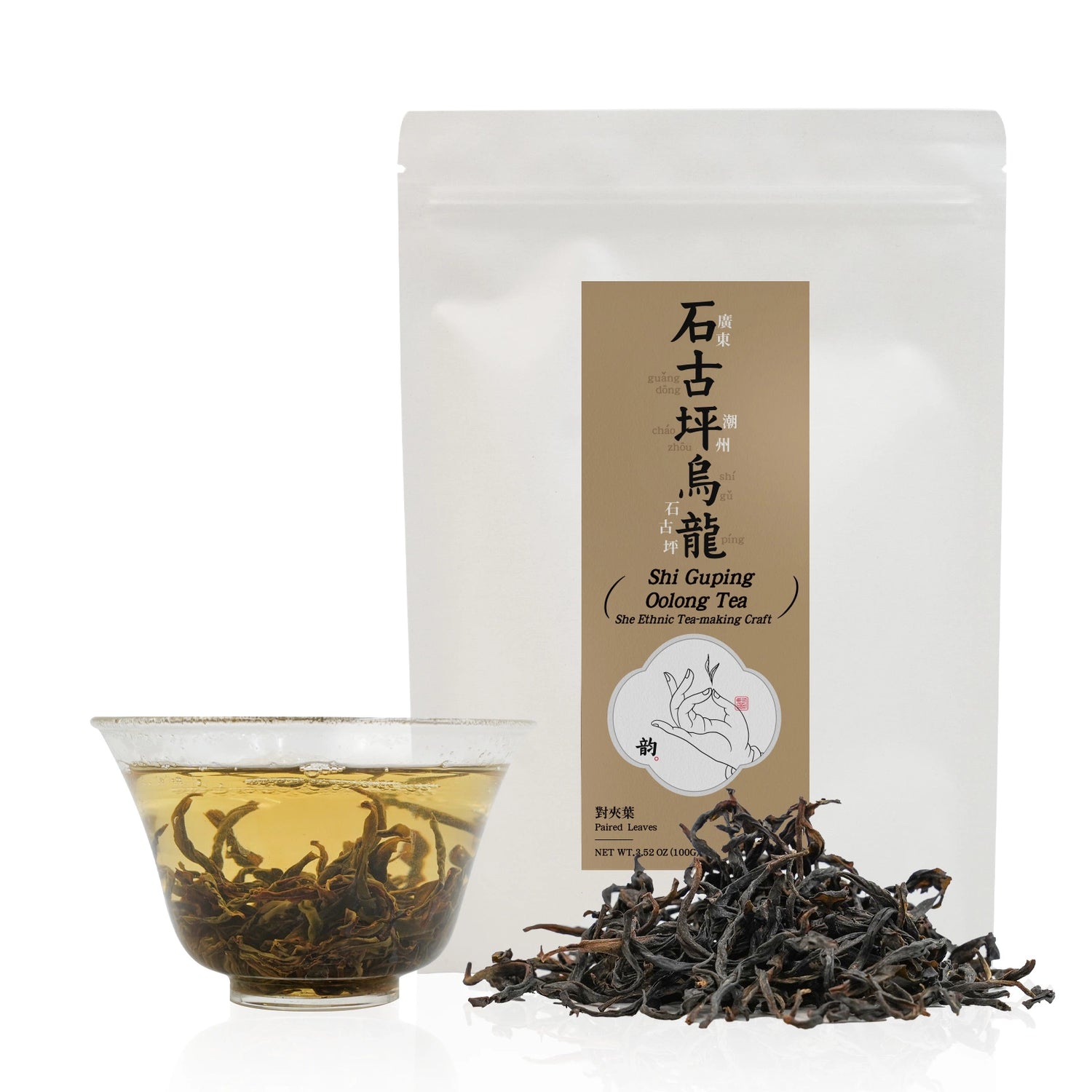

Premium Shiguping Oolong – Wild Phoenix Tea with Aged Pu’er Notes 50g 2025
$49.99 USD
Unit price perPremium Shiguping Oolong – Wild Phoenix Tea with Aged Pu’er Notes 50g 2025
$49.99 USD
Unit price perShiguping Oolong | The Wild Soul of Hakka Craft
A Rare Indigenous Cultivar with Ethnic Roots
Shiguping oolong is made from a local, indigenous tea cultivar traditionally cultivated by the She people, a minority ethnic group native to this part of Guangdong. Unlike the widely used Phoenix Shui Xian cultivar, this tea comes from a separate genetic lineage, maintained for generations in Shiguping Village.
The tea plants here are broadleaf shrubs, not arbor trees, and have adapted to volcanic soils and mountain mists. Their leaves are thicker and more polyphenol-rich than Phoenix cultivars, giving the tea a wilder, more mineral-driven taste—distinct from the fragrant and delicate Dancong varieties grown elsewhere in Fenghuang.
Flavor Note
A rare oolong with a mellow, grounding taste—low in aroma but high in sweetness and complexity. Though freshly made, it already shows a flavor style similar to a lightly aged raw pu-erh (around 2–3 years): soft, gently fruity. Unlike most Guangdong oolongs, this tea does not focus on floral fragrance, but offers a smooth, deep sweetness and strong aging potential.
Origin: Shiguping Village, Fenghuang Town, Chaozhou, Guangdong, China
Cultivar: Shiguping Group-Varietal / Bird Beak Tea
Elevation: 400–600m
Tree Age: ~50 years
Roast: Longan wood charcoal roast
Storage: Ages well over time (ideal shelf life 36+ months)
Origin & Terroir: “Low Mountains, High Tea”
Though its elevation is only 400–600m, Shiguping’s volcanic soil, dense fog (200 days/year), and dramatic day-night temperature swings create an exceptional microclimate. Tea trees here grow slowly, developing richer amino acids and aromatic compounds. This unique environment produces unexpected richness usually reserved for higher elevations.
A Wild Cultivar with a Fierce Personality
Shiguping oolong is made from a local group-varietal known as “Bird Beak Tea”, with thick leaves and 15% higher polyphenol content than Phoenix Shui Xian. Descended from Shui Xian but diverging through natural mutation, it expresses a wilder, more rugged flavor than cultivated Dancong types.
Hakka-Style Processing: Intense, Ancestral, Authentic
This tea follows a late-Qing dynasty Hakka method of:
-
Heavier tossing (三碰三晾) during oxidation
-
35–40% fermentation, close to northern Fujian-style oolongs
-
12+ hours charcoal roast using longan wood
The result? A complex aroma of roasted fruit and deep charcoal, with a flavor much more intense and aged than typical Phoenix teas.
Flavor: From Fire to Fruit to Sweetness
This tea delivers a three-stage taste experience:
-
First infusions: roasted, toasty notes like Wuyi rock teas
-
Mid infusions: tart-sweet flavor of preserved plums
-
Final steeps: mellow sugarcane sweetness
It’s bold, complex, and full of contrast—a tea that evolves in your cup and lingers on the mind.
For Aging, It’s in a League of Its Own
Historically exported from Shantou in the 19th century and used in Southeast Asian medicinal tea blends, Shiguping oolong is prized for its aging potential. Rich in polyphenols, it ages nearly twice as fast as Dancong, developing woody and medicinal notes over time.
“Three years becomes medicine. Ten years becomes treasure.”
A 2010 batch reviewed in 2023 showed clear transformation to herbal aroma, while most Dancong from the same year only showed mild honey notes.
Brewing Recommendations
Gongfu Style (Recommended):
-
5–6g tea per 100–150ml gaiwan
-
Water temp: 95–98°C / 203–208°F
-
Quick rinse, then steep 6–8+ times
-
Start at 10–15 sec per infusion and adjust to taste
Western-style Brewing:
-
2g per 100ml water
-
95°C (203°F), 2–3 minutes steep
-
Re-steep up to 2–3 times
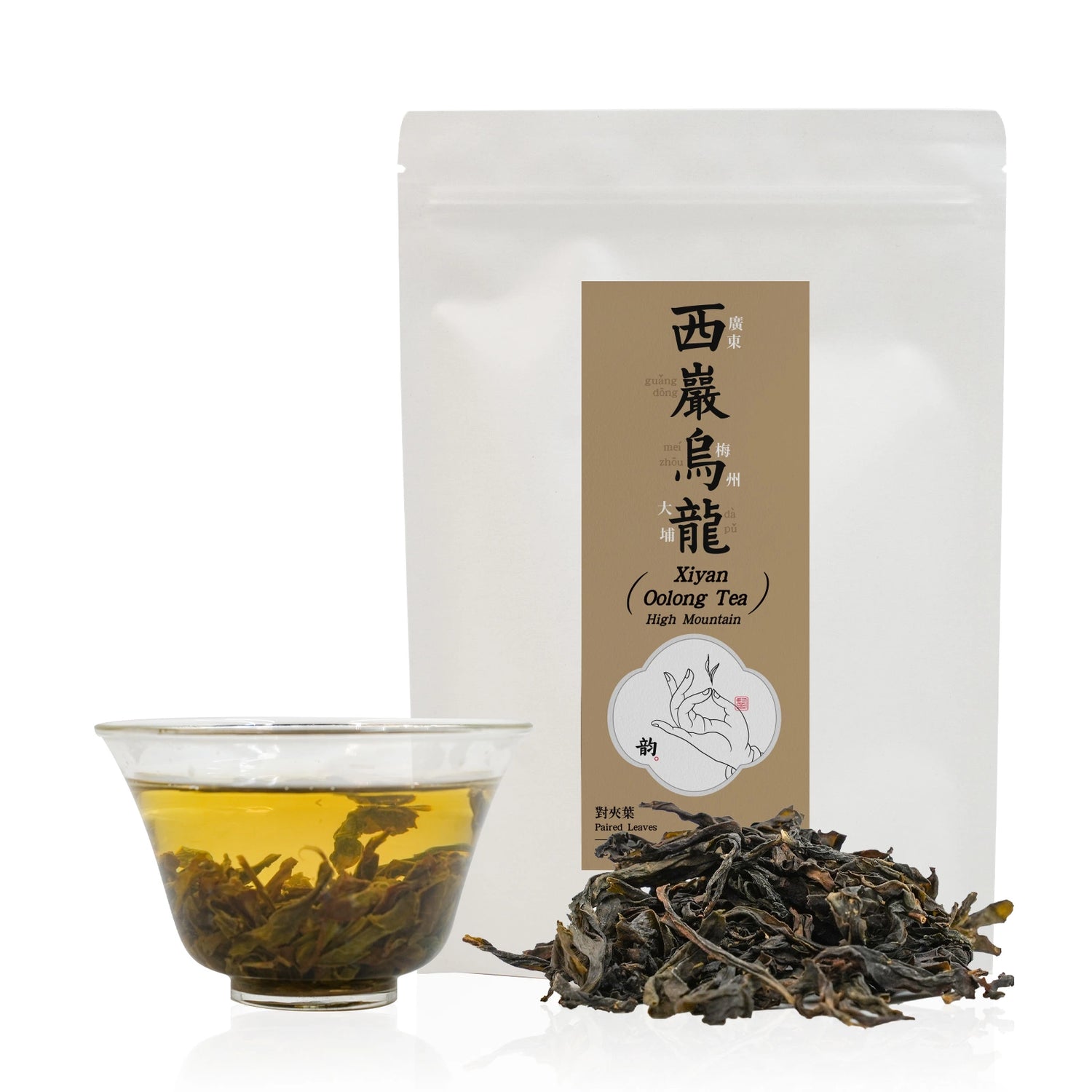
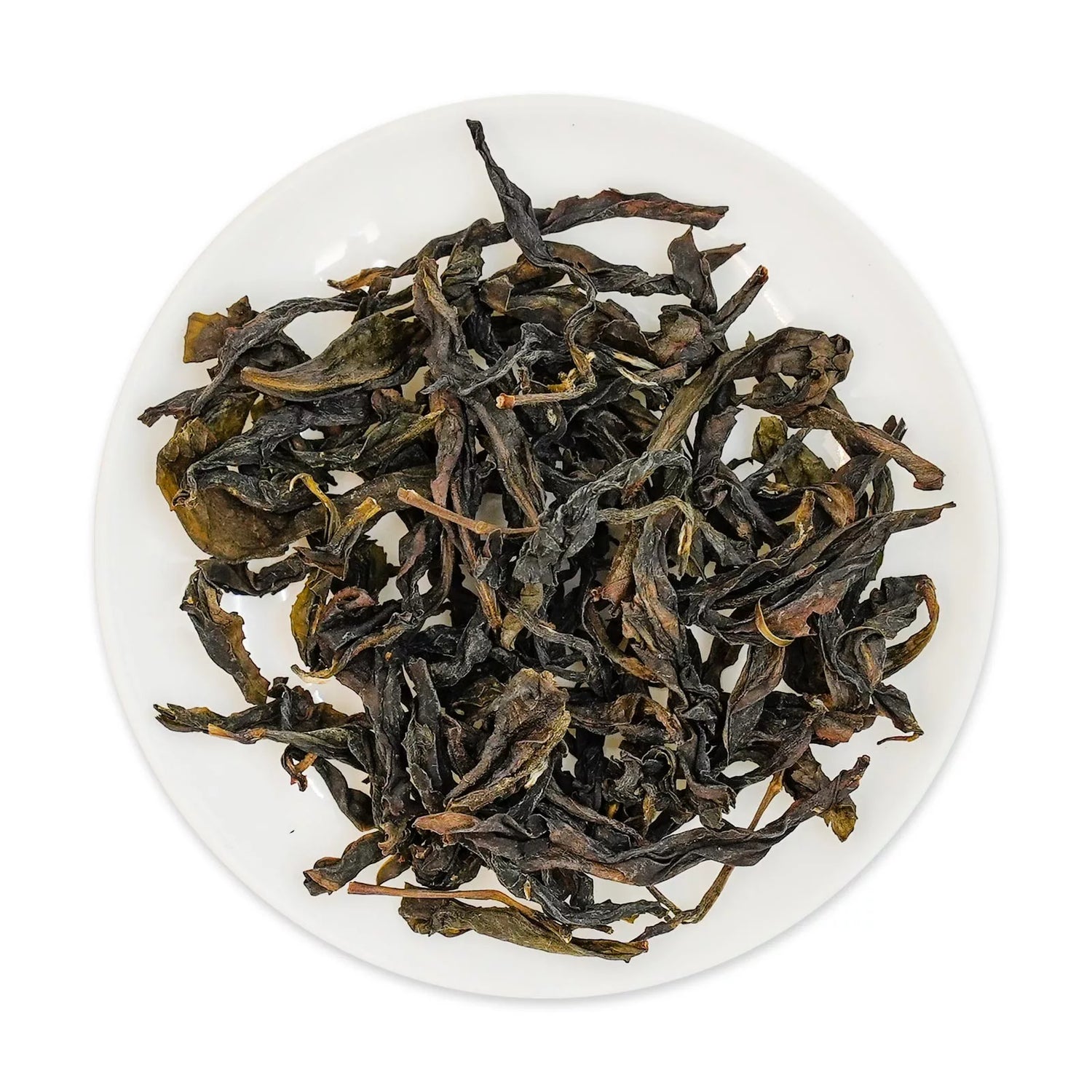
Premium Xi Yan Oolong combining Dancong fragrance with Wuyi-style strength 2025 100g
$21.99 USD
Unit price perPremium Xi Yan Oolong combining Dancong fragrance with Wuyi-style strength 2025 100g
$21.99 USD
Unit price perXi Yan Oolong | The Wild Backbone of Guangdong Oolong
A bold, floral, and mineral-rich oolong from the rocky slopes of Meizhou—combining Dancong fragrance with Wuyi-style strength.
Xi Yan Oolong is one of the most powerful and characterful oolongs in the Guangdong tea family. Grown in the remote mountain village of Xiyan in Meizhou, this tea delivers the floral lift of Phoenix Dancong along with the grounded body and minerality of Wuyi rock tea.
If Dancong is the perfume, and Lingtou is the dessert—Xi Yan is the mountain.
Tea Details
-
Cultivars: Local group varietals (mainly Shui Xian, Mei Zhan)
-
Harvest: Spring 2025
-
Origin: Xiyan Village, Fenglang Township, Meizhou, Guangdong, China
-
Elevation: 500–700m
-
Tree Age: 50+ years
-
Roasting: Heavy charcoal roasting (charcoal briquetting)
A Tea with Deep Roots in History
The Xiyan region has been cultivating tea since the Tang dynasty, and rose to fame in the Qing dynasty, when monks from the local Xizhu Temple cultivated high-mountain teas that were shipped across Southeast Asia as tribute tea.
Modern Xi Yan Oolong is made mostly from old group-varietal bushes (such as Shui Xian and Mei Zhan), many over 50 years old, growing between 500–700m. Since the 1960s, these high-altitude gardens have been known for a distinct “rock rhyme”—a deep, slightly spicy minerality that sets it apart from the sweeter, lighter oolongs of Chaozhou.
Processing: Heavier Roast, Deeper Flavor
-
Heavy withering + strong leaf shaking (yao qing)
-
Thick stems preserved for body and sweetness
-
Deep charcoal roasting (heaviest in Guangdong)
Compared to other Guangdong oolongs:
-
Xi Yan: rich, roasted, and structured (suitable for aging)
-
Phoenix Dancong: high fragrance, lighter body
-
Lingtou Dancong: soft, sweet, everyday drinker
“Rocky on the outside, floral at the core.”
Flavor Profile: Earth, Fruit, and Florals
-
Aroma: deep floral notes with subtle stone fruit
-
Taste: thick and warming, with hints of baked plum, roasted almond, and a cooling mineral aftertaste
-
Body: full and grounded, with a subtle honey edge
This is a tea that speaks slowly and confidently. It's not about quick aromas—it’s about structure, patience, and wild depth.
Who Should Try This Tea?
-
Fans of Wuyi rock tea (Yancha) looking to explore Guangdong’s version of “rock energy”
-
Dancong lovers wanting something darker, deeper, and more aging-friendly
-
Tea drinkers who value mineral-rich, grounding flavors
-
Those looking for a “serious” daily tea with excellent re-steeping value
Brewing Recommendations
Gongfu Style (recommended):
-
5g per 100 gaiwan
-
95–100°C (203–212°F) water
-
Rinse quickly, then infuse 6–8+ times
-
Start with 10–15 seconds, increase gradually
Western Brewing:
-
2g per 200ml
-
Steep for 1-3 minutes at 95-100°C
-
Re-steep up to 3 times
Introduction:
This Fenghuang Dancong tea is meticulously selected from the autumn harvest of 2023. Plucked from ancient tea trees in high-altitude gardens in Fenghuang Town, Guangdong, at elevations of approximately 850 meters, the exceptional growing conditions impart a refined texture and rich, layered flavors. The plucking standard of one bud and two leaves ensures a smooth, full-bodied taste, combining fruity notes with a roasted aroma that lingers delightfully.
Reasons to Recommend:
- Core Production Area: Grown in Fenghuang Town, Chaozhou, Guangdong, where the mild climate features an average annual temperature of 21.4°C and annual rainfall of 1685.9 mm. The acidic red soil, deep and rich in organic matter and trace elements, plays a crucial role in shaping the tea's distinctive aroma and flavor.
- Tea for Diplomatic Occasions: On April 7, 2023, French President Emmanuel Macron visited Guangzhou and was served Fenghuang Dancong tea during a tea ceremony at the Songyuan Hotel, highlighting its status as a prestigious Guangdong tea.
- Unique Tea Variety: Harvested from ancient tea trees over 100 years old, planted 6-8 meters apart in remote mountainous areas and picked only once a year. This ensures a rich, sweet aftertaste with a slight astringency, characteristic of Fenghuang Dancong.
- Special Processing Techniques: The unique methods of oxidation and medium roasting create a tea with floral and honey-like aromas, setting it apart from others.
Oxidation Level: 30%-40%
Roasting Level: Medium roast
Tea Garden Soil: Yellow soil
Processing Time: Autumn 2024
Best Before Date: 24 months
Tea Variety: Fenghuang Dancong
This tea was freshly roasted on August 31 and is recommended to be stored for a period of time before drinking.
Why shouldn’t freshly roasted Oolong tea be consumed right away?
Right after roasting, the tea has a strong charcoal aroma that can mask its natural fragrance and flavor. It also retains a certain “fiery” quality — caffeine and tea polyphenols remain high, making the taste slightly harsh or astringent and potentially irritating to the throat or stomach. Drinking it too soon can also lead to a feeling of internal heat, especially for those prone to “heatiness” or during dry seasons, known in traditional Chinese medicine as “shang huo” (excess internal heat). These symptoms quickly subside once consumption stops.
To avoid discomfort, let the tea rest before drinking. This allows the fire taste to fade (“tui huo”) and the tea’s components to stabilize. Once rested, the tea becomes smoother and more balanced in both aroma and flavor. Lightly roasted teas need about 1–2 months to rest, while medium to heavily roasted ones require around 6 months.
Wild Souchong Black Tea uses wild tea leaves from mountains in Guangxi Province. It uses a special tea-making method of traditional Lapsang Souchong technique. Wild Souchong Black Tea maintains the taste of Lapsang Souchong, while it has a richer flavor. Lapsang Souchong is the earliest black tea and it is called black tea originator. It has a history of 400 years. Lapsang Souchong is baked by pine needles or pine wood. As a result, it has very strong fragrance. Also, due to the bake technique, the color of the tea is grey black and the color of tea soup is dark amber.
The 2024 Silver Needle White Tea is a must-have for white tea enthusiasts and collectors. Crafted in Fuding, the birthplace of white tea, this premium tea is made from tender Fuding Da Bai buds using traditional sun-drying methods. Its delicate floral aroma, honey-like sweetness, and refreshing smoothness make it perfect for those seeking a refined and natural tea experience. Ideal for immediate enjoyment or aging, it’s a great choice for wellness-focused tea drinkers and collectors. However, if you prefer bold teas or add milk and sugar, this delicate tea may not suit your taste.
Silver Needle White Tea Product Details
Origin: Fuding City, Fujian Province, China
Harvest Date: March 23, 2024
Grade: Premium Silver Needle (First Grade)
Tea Variety: Fuding Da Bai (Big White Tea Bush)
Tea Master: Li Shengyuan, Senior Tea Artisan with over 10 years of experience
Flavor Notes: Delicate floral aroma, honey-like sweetness, and refreshing smoothness
What Makes It Special: Crafted in Fuding, the birthplace of white tea, using traditional sun-drying methods. This tea is made exclusively from tender tea buds, making it perfect for tea lovers and collectors alike.
What Is Silver Needle White Tea?
Silver Needle is the highest grade of Chinese white tea. Officially, it’s defined as a white tea made from the single buds of Fuding Da Bai or Shui Xian tea bushes through specific steps like withering, drying, and sorting. Harvested every spring, the picking season typically starts in mid to late March and ends around early April.
What sets Silver Needle apart is its exceptional freshness and smooth flavor, thanks to its high levels of amino acids, which give it its signature refreshing taste.
Perfect for enjoying now or aging for years to come!
How to brew
Water Temp: 194–203°F (or 90-95℃)
Tea-to-Water: 1g per 25ml
Steep Time: 30 sec first steep, add 5 sec each time
Teaware: White porcelain gaiwan
Re-Steep: 5-7 times
Pour Tip: Pour along the gaiwan’s side, not directly on leaves
How to Store Silver Needle White Tea
While white tea can be aged and stored for long periods, Silver Needle is best enjoyed fresh, similar to green tea, to appreciate its delicate and vibrant flavor.
Short-Term Storage: For small amounts, use kraft paper bags or aluminum pouches. Squeeze out excess air, seal tightly, and place the bags in a small cardboard box or tin can for safekeeping.
Long-Term Storage: If you’re storing a larger quantity, use a triple-layer method:
Wrap the tea in an aluminum pouch.
Seal the pouch in a plastic bag.
Place everything inside a sturdy cardboard box.
Keep the tea in a cool, dry place where the temperature stays below 77°F (25°C) and the humidity is under 50%.
Following these tips will help preserve its quality for years to come!
Why Choose This White Peony Tea?
If you love delicate floral aromas, smooth textures, and the unique charm of traditional Chinese white tea, this White Peony (Bai Mudan) from Fuding, China, is a perfect fit. Its light sweetness and refreshing aftertaste make it ideal for beginners and seasoned tea lovers alike. Expertly crafted by Master Li Shengyuan using traditional sun-drying techniques, this tea is perfect for sipping, gifting, or collecting.
Product Details:
Origin: Fuding, Fujian, China
Harvest Date: April 2024
Grade: Premium White Peony (Bai Mudan)
Tea Variety: Fuding Da Bai (Big White)
Craftsmanship: Masterfully crafted by Li Shengyuan, a senior tea artisan with over 10 years of experience
Flavor Profile: Delicate floral aroma, smooth texture, and a refreshing, slightly sweet finish
What Makes It Special: A traditional sun-dried white tea from China’s famous white tea region, handpicked and expertly crafted for quality and collectibility
How to brew:
Water Temp: 194–203°F (or 90-95℃)
Tea-to-Water: 1g per 25ml
Steep Time: 30 sec first steep, add 5 sec each time
Teaware: White porcelain gaiwan
Re-Steep: 5-7 times
About White Peony Tea:
White Peony, or Bai Mudan, is a premium Chinese white tea known for its elegant floral fragrance, light sweetness, and clean, refreshing taste. Made from tender tea buds and the first leaf, it strikes a perfect balance between flavor and smoothness, making it approachable for beginners and cherished by tea enthusiasts. Its name comes from its unique appearance: green leaves and silvery-white buds resemble blooming flowers. When steeped, the leaves cradle the buds, creating a visual like a flower in bloom. While it can be aged, its tender nature makes it best enjoyed fresh.
Storage Tips:
To preserve its quality, store White Peony tea in a cool, dry place following GB/T 30375 standards.
For short-term storage: Use kraft paper or aluminum bags, remove excess air, seal tightly, and place in a tin or small box.
For long-term storage: Use triple-layer packaging (cardboard box, aluminum bag, and plastic bag) in a controlled environment below 77°F (25°C) with humidity under 50%.
Recommended Purchase:
This 2014 aged Shou Mei White Tea is made from Fuding Da Bai and Da Hao tea cultivars grown in Fujian, China. Crafted with traditional sun-drying methods, it delivers a unique blend of "aged aroma" and "herbal fragrance." With a rich, sweet aftertaste and long-lasting brews, this tea is ideal for those who appreciate the complexity of aged teas. However, it’s best enjoyed through simmering or long steeps, making it less suited for Gongfu-style brewing. If you prefer fresh, light, or floral white teas, this option may not align with your taste. This tea is made from whole loose leaves compressed into small 5g cakes. There’s no need to measure—perfect for quick and convenient brewing.
Key Details about 2014 Aged Shou Mei:
Origin: Fuding City, Fujian Province, China
Production Date: August 16, 2014
Grade: First Grade, Autumn Harvest Shou Mei
Tea Cultivar: Fuding Da Bai, Da Hao
Craftsmanship: Traditional sun-drying, overseen by tea master Li Shengyuan
Flavor Highlights: Deep "aged aroma" and "herbal fragrance," with exceptional durability in steeping.
Special Note: This 10-year-aged Shou Mei embodies the character and charm of time-aged white tea.
What is Shou Mei White Tea?
Shou Mei is a type of Chinese white tea primarily grown in Fuding, Zhenghe, and Songxi in Fujian Province. Its name, "Longevity Eyebrow," refers to the tea's leaf shape, which resembles the eyebrows of an elderly person. According to the latest national standards, Shou Mei is crafted from young shoots or leaves of tea plants such as Da Bai, Shui Xian, or local varietals through withering, drying, and sorting processes. While often considered less delicate than other white teas, its robust and complex flavor makes it a great choice for tea beginners.
Brewing and Enjoyment Tips for Shou Mei White Tea:
Shou Mei is not typically consumed fresh; it is better appreciated after aging for at least three years. With time, the tea develops deeper, more layered flavors. After 10 years, aged Shou Mei offers a smoother, sweeter taste, a richer, darker tea liquor, and distinctive "aged" and "herbal" aromas. These qualities make aged Shou Mei highly valued among white tea enthusiasts. It’s best enjoyed when simmered or steeped for extended periods.
Storage Guidelines for Shou Mei White Tea:
To preserve its quality, store the tea in a dry environment with moisture content below 8.5%, temperature around 25°C (77°F), and humidity under 45%. Keep it away from light, odors, and air exposure by sealing it tightly. After three years of proper storage, the tea can be classified as “aged white tea.”
How to Brew Shou Mei White Tea:
Shou Mei Thermos Brewing
1g tea per 100ml (3.4oz) water.
Boiling water (212°F).
Steeping Time: 1-2 hours.
Recommended Tool: Insulated thermos.
Boiling Method:
Add 1g of tea per 100ml (3.4oz) water.
Boil for 1-2 minutes, then let it sit for 2-3 minutes.
For each rebrew, boil 3 minutes longer.
Use a glass or ceramic teapot.
Enjoy up to 3 brews.
Recently viewed products
Chat with fellow tea lovers, ask questions, and share your tea moments.




